2023 World Environment Day: International Law Experts Call For Renewed Commitment To The United Nations Sustainable Development Goals (SDGS)
The recommendation was made at a public lecture to commemorate this year’s World Environment Day. The World Environment Day is an annual event led by the United Nations Environment Programme and held annually on 5 June worldwide to promote global awareness on environmental issues.
Themed “Solutions to Plastic Pollution” this year’s ceremony was organized by the Natural Resources, Energy and Environment (NREE) Committee of the International Law Association (Nigerian branch) chaired by Oluwaseyi Ebenezer, and held in partnership with the Institute for Oil, Gas, Energy, Environment and Sustainable Development (OGEES Institute), Afe Babalola University Ado Ekiti (ABUAD), National Environmental Standards and Regulations Enforcement Agency, Ekiti State, National Emergency Management Agency (NEMA) as well as the Ekiti State Ministry of Environment, NGOs and several Youth led Organizations in the state in concert with Triple Green Environmental Development Foundation (TGED Foundation). The ceremony featured a compelling keynote conversation with Professor Christina Voigt, a world-renowned professor of international environmental law at the University of Oslo, Norway, and the Chair of the IUCN World Commission of Environmental Law.
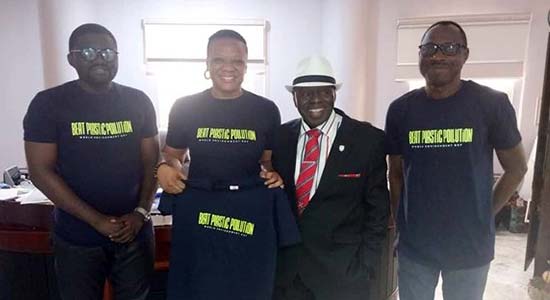
Professor Voigt called on governments across the world, including Nigeria to actively adopt two complimentary strategies to combat plastic pollution and advance the SDGs. First is the bottom-up strategy of adopting homegrown solutions to plastic pollution, including through clean entrepreneurship innovation, and second is the top-down strategy of adopting and implementing international instruments on combating plastic pollution.
The keynote conversation was followed by high-level panel discussions featuring notable experts including Dr. Isa Elegbede of Geo Blue Planet, Switzerland, Dr. Adenike Akinsemolu of the Green Institute, Nigeria and Folakemi Jegede, a member of the NREE Committee who discussed the role of government and business enterprises to reduce plastic pollution through sustainable packaging, green procurement and emphasis on pollution control.
In his opening goodwill message, the President of the International Law Association (Nigerian Branch), who is also Vice Chair of the United Nations Working Group on Business and Human Rights, Professor Damilola S. Olawuyi, SAN said “We have just seven years left for the attainment of all the SDGs, which places enormous responsibility on the new administration of President Bola Tinubu. A renewed commitment to the SDGs can be the foundation for attracting new global sustainability-related investments and financing, doubling our internally generated revenue and creating new green technologies and jobs that are needed to propel the Nigerian economy at these very challenging times. The way forward is to place the SDGs squarely at the heart of planning and decision making at all levels. As time and opportunities wait for no one, I hope the new administration will take prompt and active steps to refocus national planning on the SDGs, realizing that if we fail to do so, such financing opportunities will go to other ready markets.”
On her part, the Chairperson of the Committee, Ms. Oluwaseyi Ebenezer charged governments at all levels as well as the various stakeholders to not only curb plastic pollution but also to stretch their reach far and beyond to other environmental issues such as climate change and biodiversity loss through continued collaboration and partnerships in line with the ‘United Nations SDG 17 so as to create a greener and safer environment for us all.
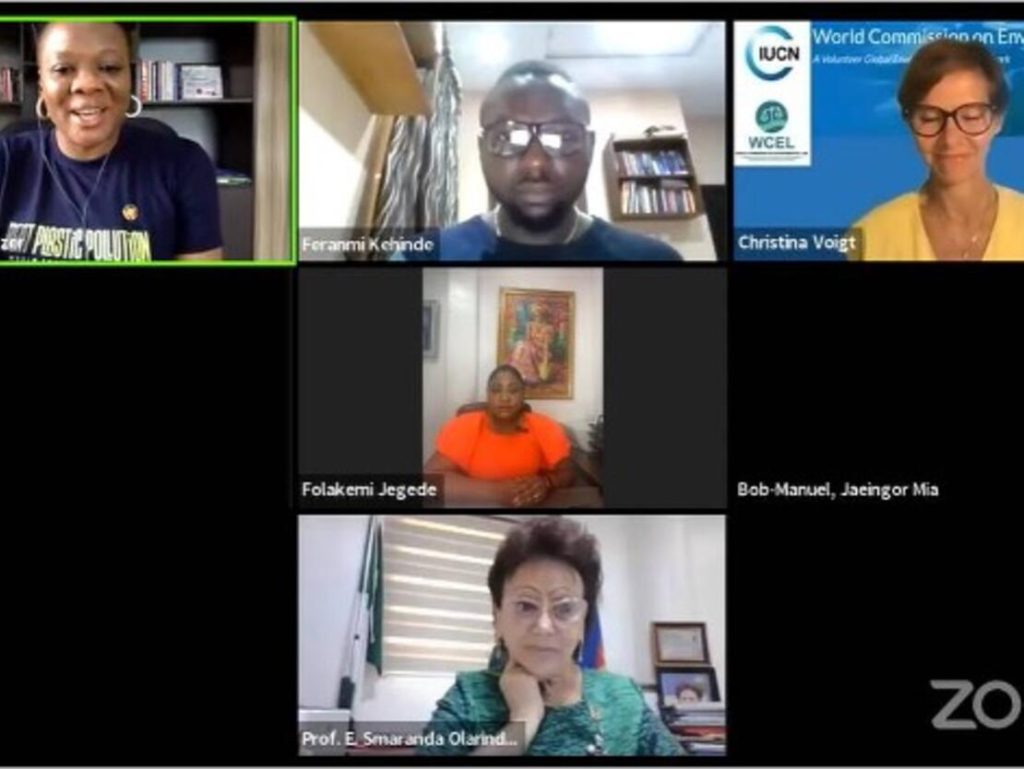
This year’s celebration also featured a road campaign on plastic pollution across Ado Ekiti, the capital city of Ekiti State which took place on the 5th of June. The campaign was declared open by the Vice Chancellor of Afe Babalola University, Ado Ekiti (ABUAD), Prof. Elisabeta Smaranda Olarinde who in her speech stated the urgent need to address the adverse environmental impacts of plastic pollution and encouraged the public to embrace sustainability lifestyles. The road campaign was attended by a large number of people including notable stakeholders such as the National Environmental Standards and Regulations Enforcement Agency (NESREA), National Emergency Management Agency (NEMA) as well as the Ekiti State Ministry of Environment, NGOs and several Youth led Organizations in the state.
The ILA was founded in Brussels in 1873. The ILA now has some 4,500 members in 45 national and regional branches around the world. It is headquartered in London under the leadership of the global chair, Professor Christine Chinkin. The Nigerian Branch of the ILA regularly hosts innovative lectures, seminars, conferences, and other capacity development programs to advance the study and understanding of international law in Nigeria. To learn more about the ILA, its activities, and events visit http://www.ila-hq.org
In May 05, 2022, ABUAD Institute for Oil, Gas, Energy, Environment and Sustainable Development (OGEES Institute (OGEES) in collaboration with the International Law Association (Nigerian branch) and the Green Institute, is organizing INTERNATIONAL CONFERENCE ON ENVIRONMENTAL LAW, GOVERNANCE AND SUSTAINABLE DEVELOPMENT with the theme CLIMATE CHANGE, ENERGY TRANSITION AND LOOKING BEYOND, THE EARTH’S FUTURE: THE ROLE OF STAKEHOLDERS IN SUSTAINING INTERNATIONAL ENVIRONMENTAL RULE OF LAW.
The International Conference on Environmental Law, Governance, and Sustainable Development provides a timely opportunity to critically investigate practical, philosophical, and methodological approaches for addressing longstanding barriers to the effective design and implementation of environmental law.
This Conference brings together governments, business leaders, environmental educators, academics, and practitioners to exchange knowledge experience and learn from each other on how to strengthen the implementation and application of the international environmental rule of law in Africa and beyond.
In same vein, ABUAD, in 2022, partners with Triple Green Environmental Development Foundation and National Environmental Standards and Regulations Enforcement Agency, Ekiti State to organize a symposium and workshop to train the public (local and regional) free of charge (at no cost) on climate change disaster, risk, early warning and monitoring as well as environment related services to commemorate the Year 2022 World Environment Day themed “Only One Earth” and also review the ABUAD climate change masterplan.
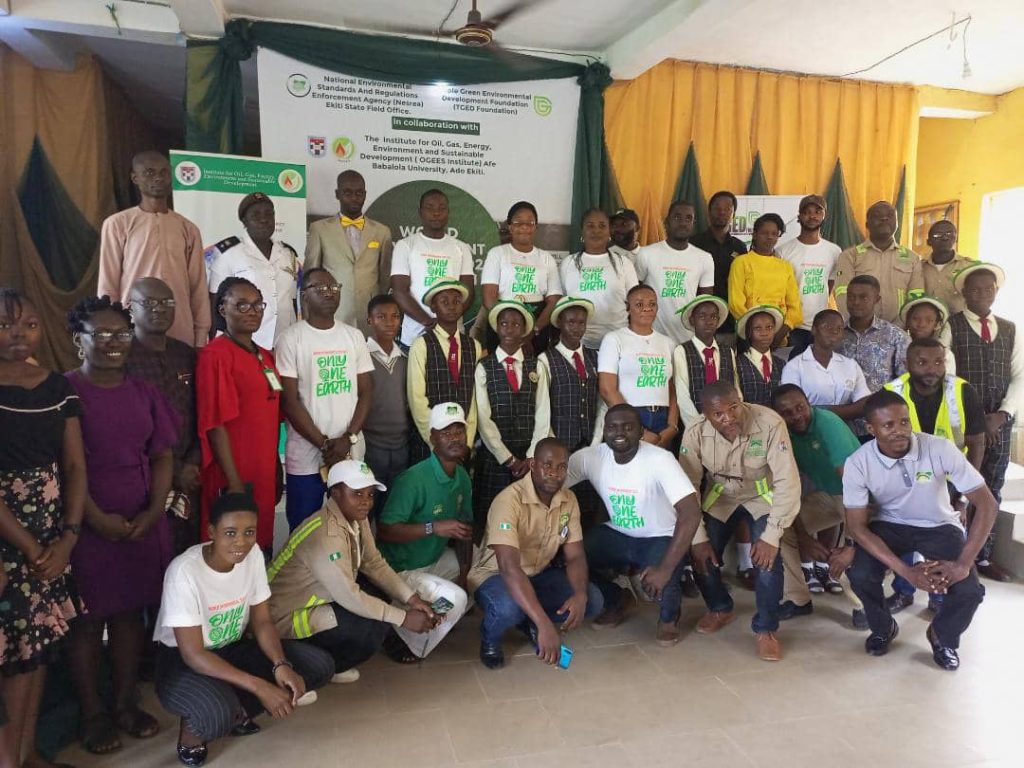
The Team Lead of Triple Green Environmental Development Foundation, TGED, Oluwaseyi Ebenezer has advocated good environmental policies by government to achieve a sustainable environment.
Also, a Lecturer at Adekunle Ajasin University, Akungba Akoko, Ondo state, Prof. Bayo Oluduro said there’s need for human beings to avoid activities which can have negative impact on the environment.
He stated this while delivering a keynote lecture in Ado-Ekiti at a symposium to commemorate this year’s World Environment Day.
The symposium was organized by the Institute for Oil, Gas, Energy, Environment and Sustainable Development, OGEES, Afe Babalola University, Ado-Ekiti, the National Environmental Standards And Regulations Enforcement Agency, NESREA, Ekiti State field office, and an NGO Triple Green Environmental Development Foundation and

Speaking on the theme for this year’s Environment Day, “Only One Earth” Prof. Oluduro explained that human activities such as deforestation, pollution, use of chemicals and improper waste disposal had great impact on the environment.
According to the Professor, in order to address the challenges facing the environment, people should embrace waste recycling, reduce the use of chemicals and avoid environmental pollution, among other measures to make the earth worthy of living.
In another lecture, a Waste Management Expert, Dr Mrs Comfort Adeojo pointed out that the mode of waste disposal and collection should improve as communities grow.
Dr Adeojo expressed displeasure over indiscriminate dumping of wastes, especially in Ado-Ekiti which is the state capital, calling for attitudinal change among the residents.
The Coordinator of NESREA in Ekiti State, Mrs. Abosede Toroni in her welcome address, stressed the need for human beings to always treat their environment with care as whatever they do to the environment would have effect on them.
In a goodwill message delivered virtually, the Vice Chancellor, Afe Babalola University Ado-Ekiti, Prof. Smaranda Olarinde noted that ensuring a safer environment was paramount to the management of the Institution, hence the reason for establishing an Institute to regulate activities regarding environment.
Also, the Director of the Institute for Oil, Gas, Energy, Environment and Sustainable Development of ABUAD, Prof. Damilola Olawuyi called on concerned authorities to collaborate in order to mitigate the effects of climate change.
At the programme, there was a plenary session where Experts including Prof. Wole Adebayo of EKSU, Dr. Oluwaseyi Akpor from ABUAD, Dr Sikiru Olowoyo, ED, Green Global Environmental Network and the Ekiti State Coordinator of NESREA, Mrs Abosede Toromini exposed the participants to acts that contribute to environmental degradation and how to do away with them.
The plenary session was moderated by the team lead of TGED Foundation, Oluwaseun Ebenezer where she stressed the important of cultivating habit of planting trees to save our environment from danger.
The symposium featured planting of tree for afforestation as part of ways of protecting the environment.
In 2023, ABUAD has expanded its offerings to organize over 150 diverse programs aimed at a wide range of learners. These programs include distance learning options, part-time courses that accommodate working professionals, short-cycle workshops designed for skill enhancement, as well as comprehensive bachelor’s, master’s, and doctoral degree programs. This remarkable growth signifies a 65% increase in the number of organized programs compared to 2022 and an impressive 85% rise from 2021’s offerings.
The primary objective behind these initiatives is to enhance learning outcomes for participants and to reinforce fundamental services that can significantly impact community well-being. The training programs are specifically designed to address critical areas such as healthcare services, which aim to improve public health and accessibility to medical resources. Additionally, they focus on poverty eradication through practical skills training and economic empowerment.
Moreover, these programs seek to elevate living standards by providing essential services such as access to clean drinking water and reliable electricity. They also emphasize capacity building in agribusiness and sustainable agriculture, equipping individuals with the knowledge and skills necessary to thrive in these vital sectors. By integrating these elements, ABUAD is committed to fostering a more sustainable and prosperous future for all members of the community.
ABUAD Law and Community Legal Clinic
In 2023, the ABUAD Law and Community Legal Clinic, located within the ABUAD College of Law, is dedicated to providing comprehensive courses and programs aimed at alleviating poverty and enhancing access to justice for marginalized and underprivileged members of society.
To achieve this goal, the Clinic organizes monthly training sessions in various settings, including correctional facilities, disability support homes, and low-income neighborhoods. These sessions are designed to educate participants about their rights and inform them about essential government services and programs available to them.
Through these initiatives, the ABUAD Law and Community Legal Clinic seeks to empower individuals by equipping them with the legal knowledge and resources necessary to navigate their challenges and improve their quality of life. The Clinic’s commitment to community engagement and social justice is evident in its ongoing efforts to reach those who are often overlooked, fostering a more equitable society for all.
Additionally, the Afe Babalola University Law Clinic provides invaluable services to neighboring communities as part of its commitment to some of the 17 United Nations Sustainable Development Goals (SDGs). The law clinic experience is an integral part of students’ legal practice, equipping them with the necessary skills for the workplace while also providing a solid theoretical foundation and in-depth substantive knowledge in their fields of study.
This is the chronological report of Afe Babalola University Law Clinic from 2015-2023![]()
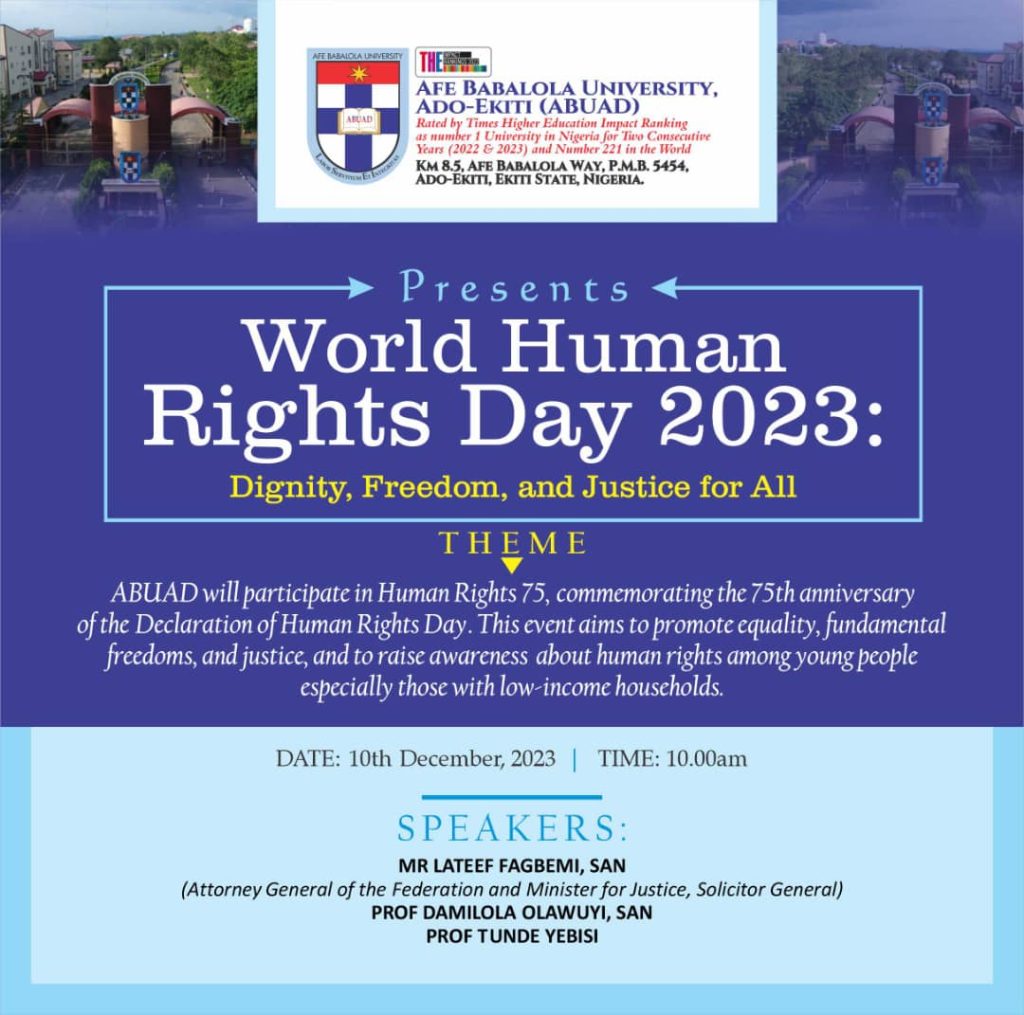
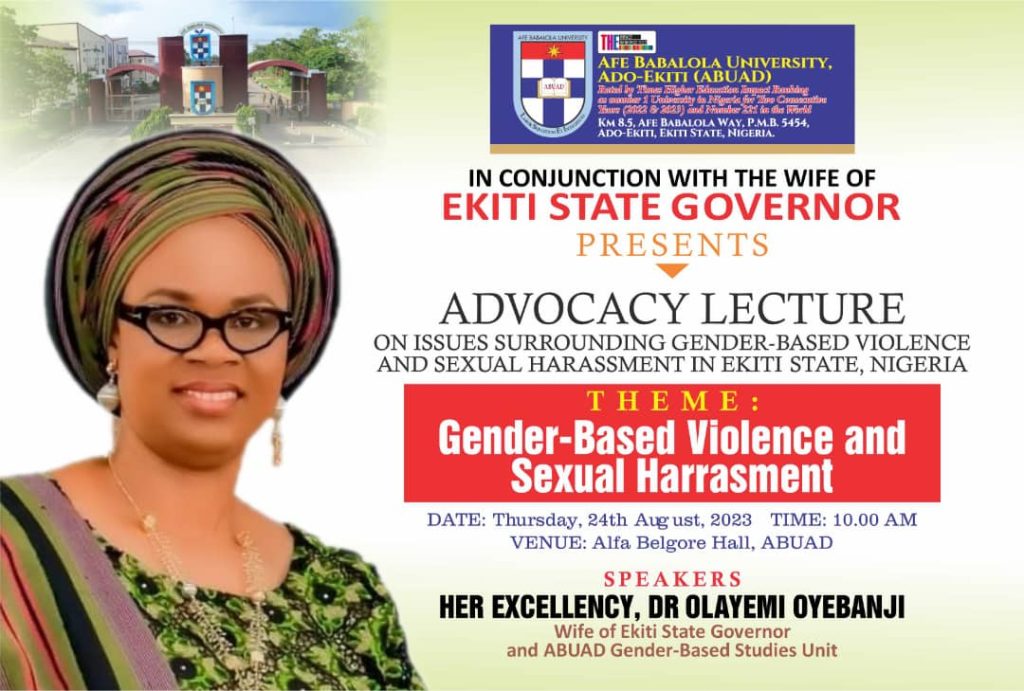
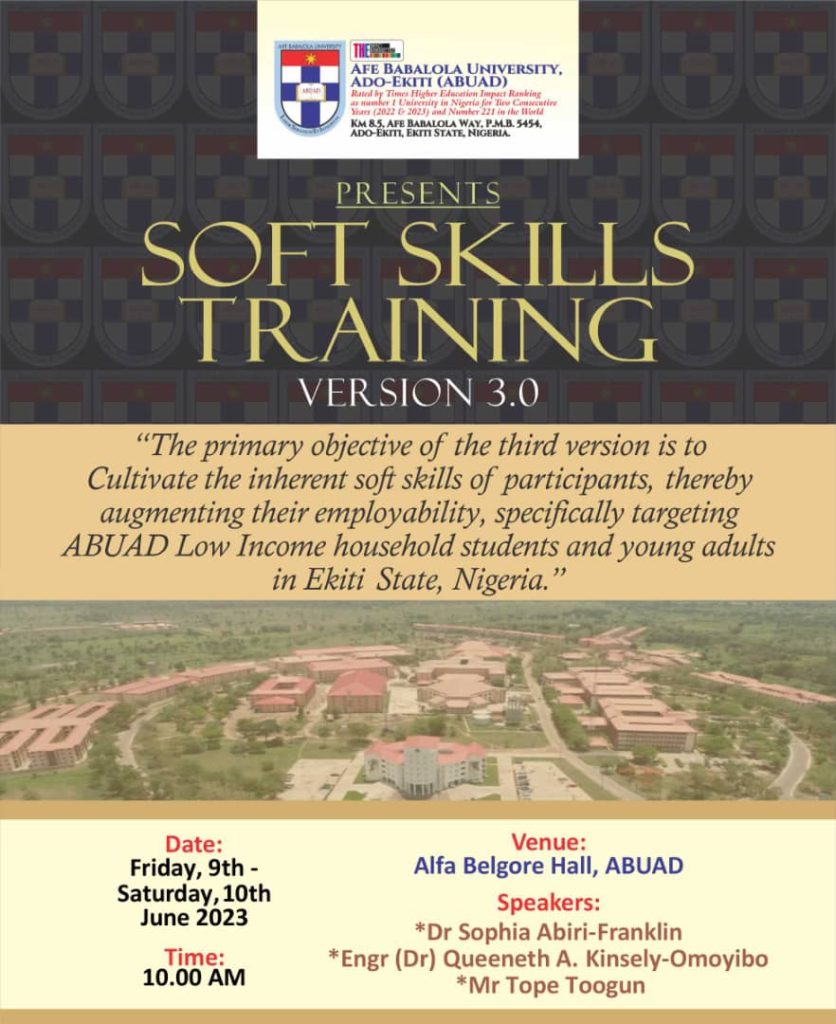
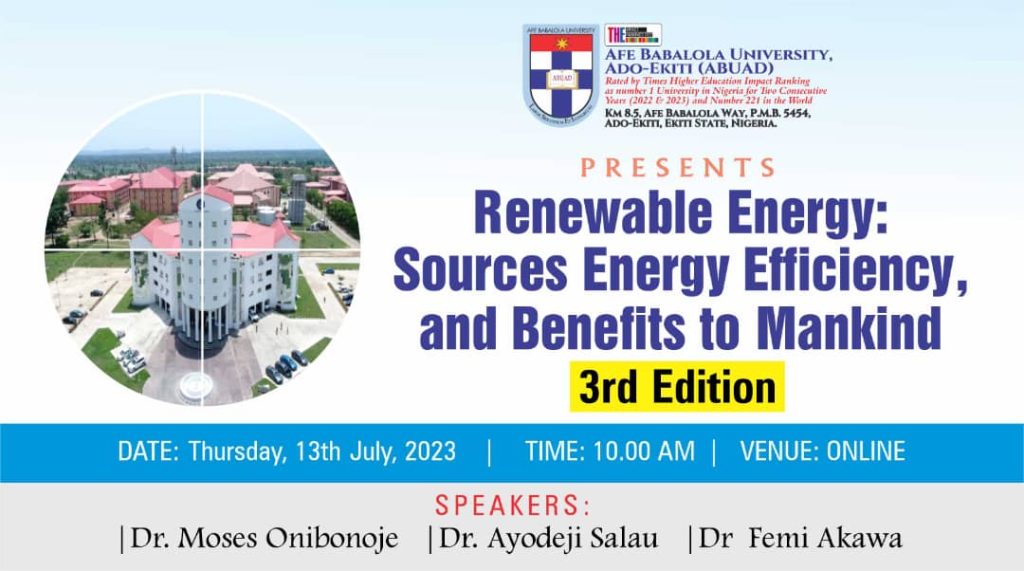
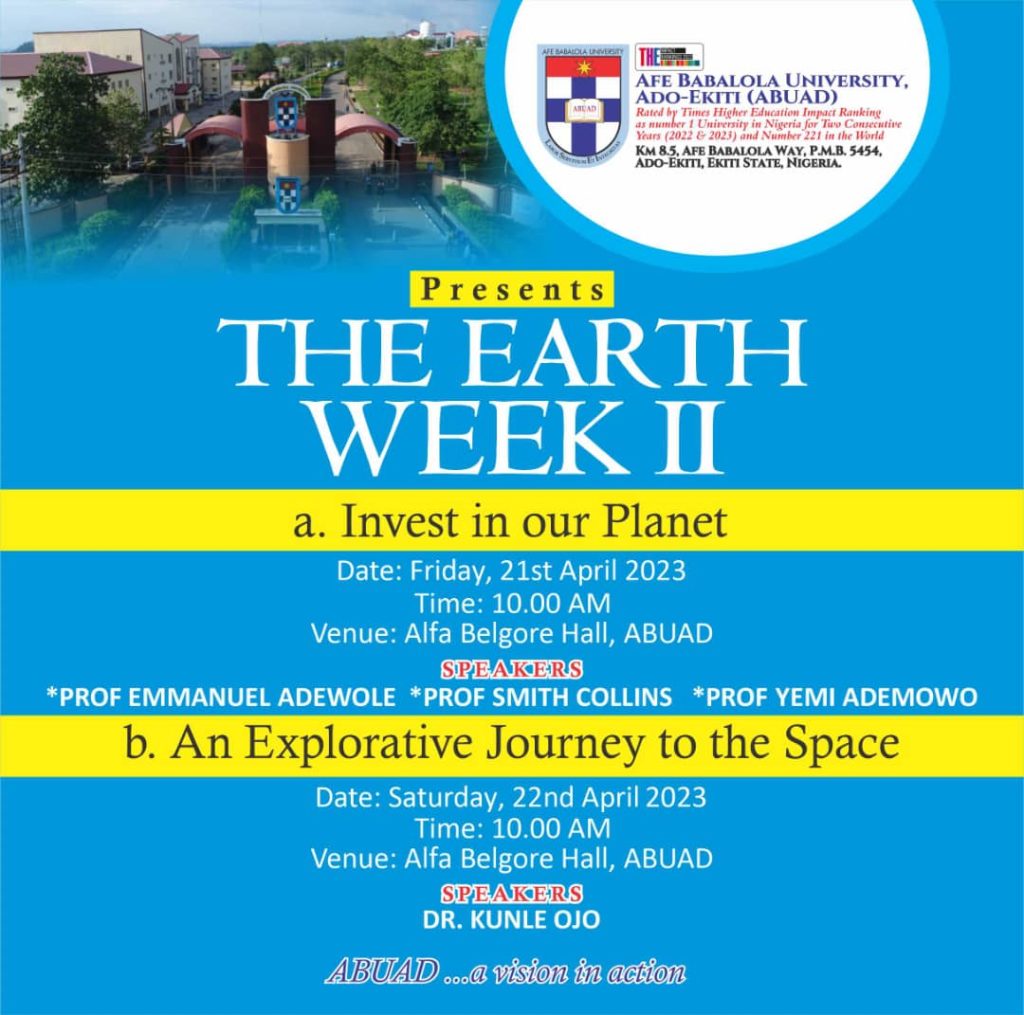
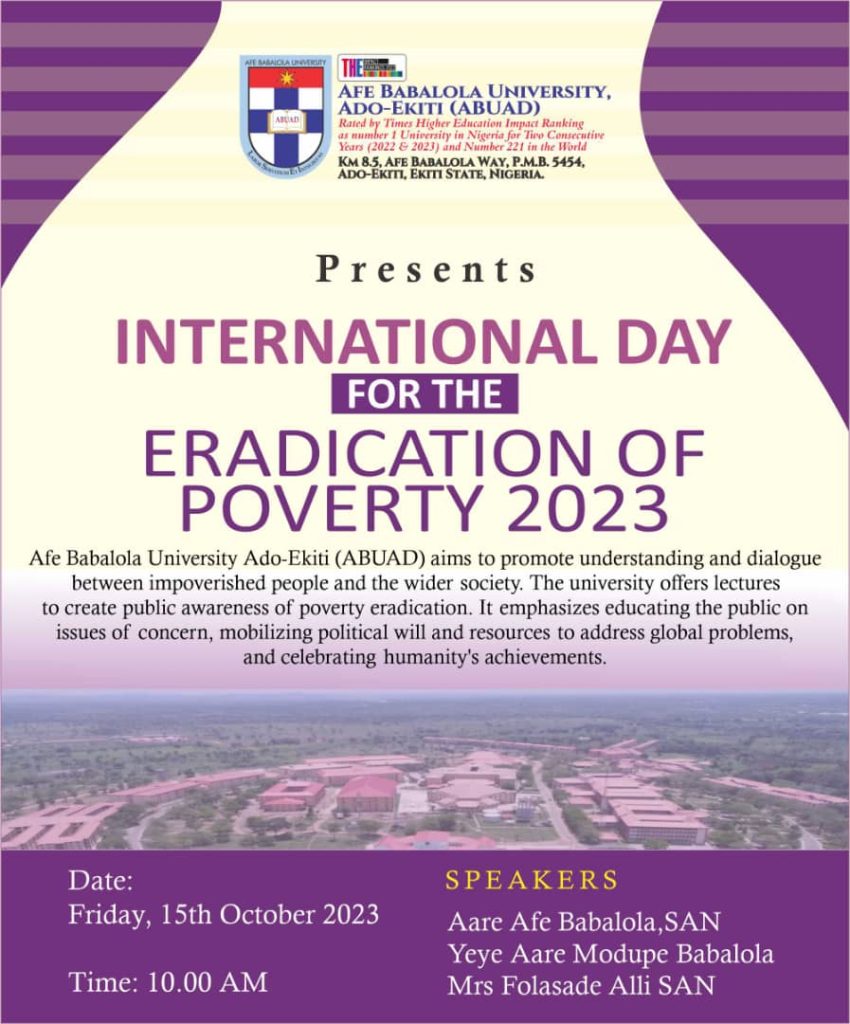
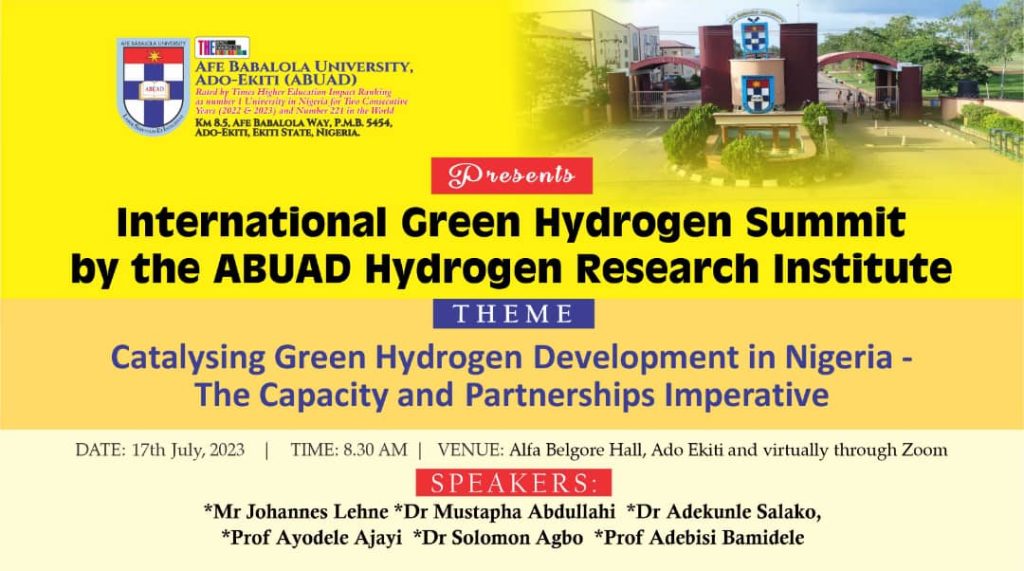
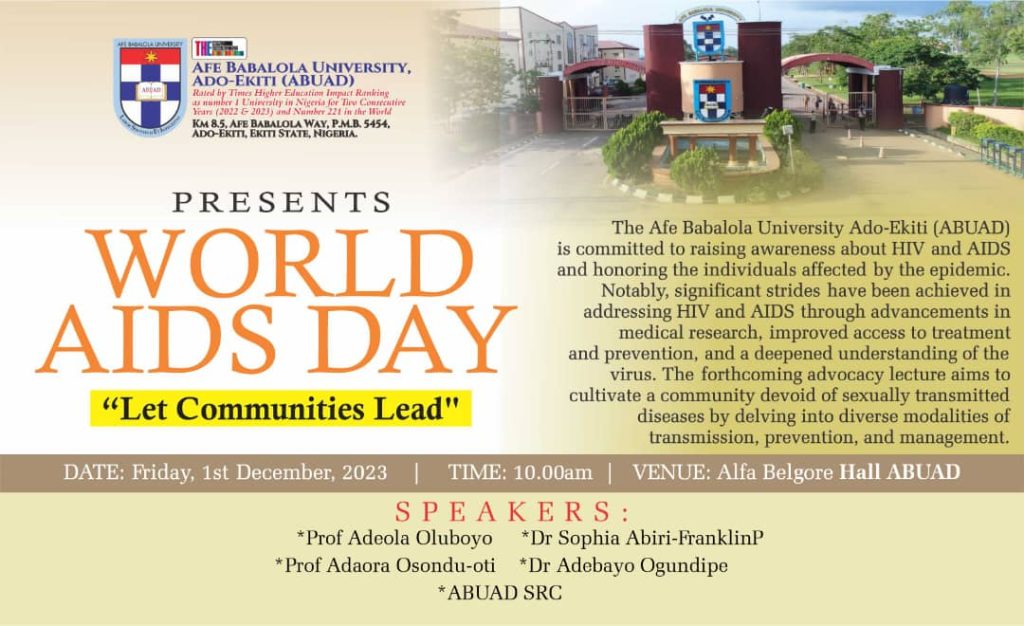
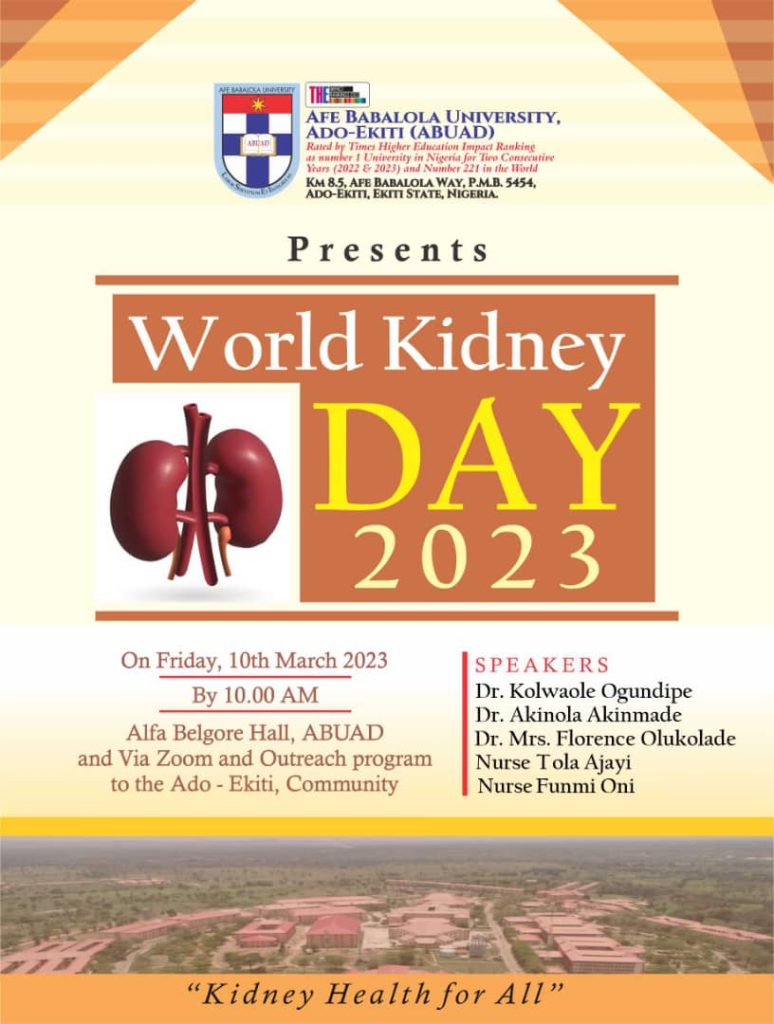
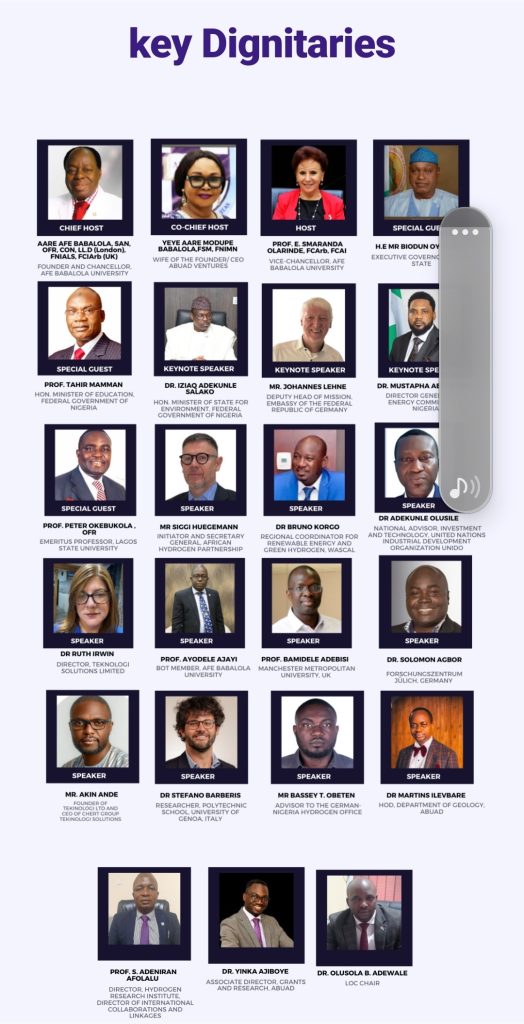
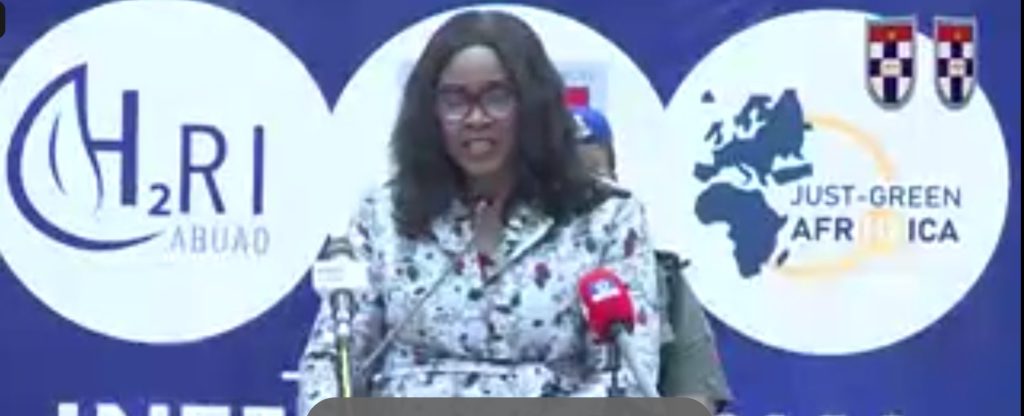
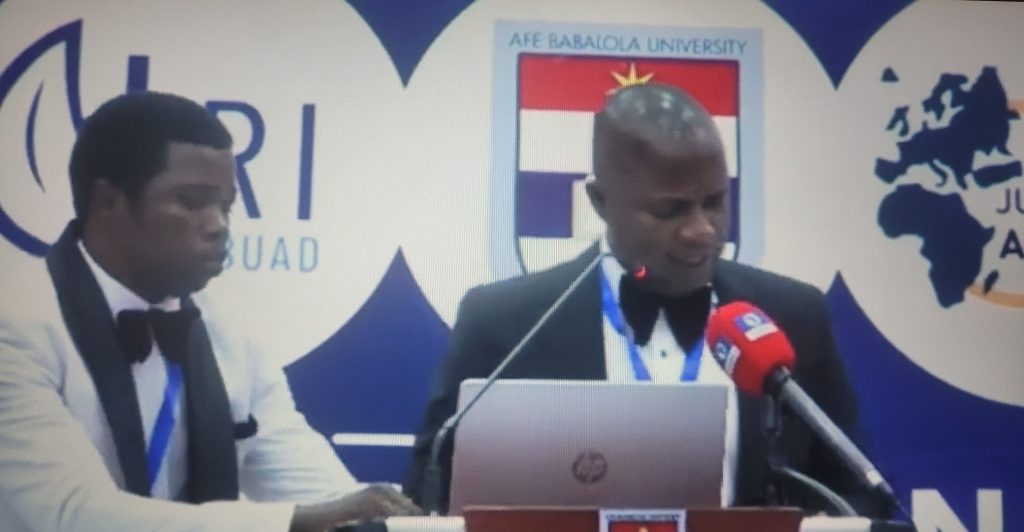
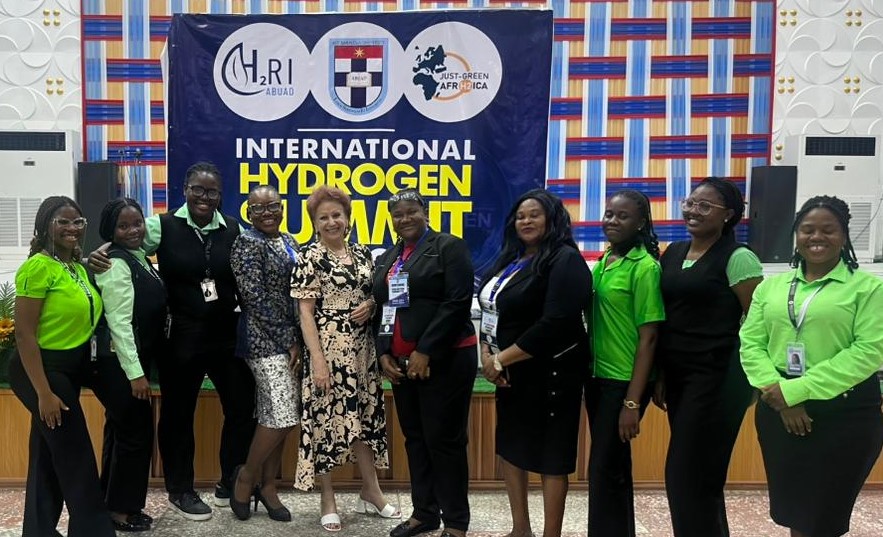
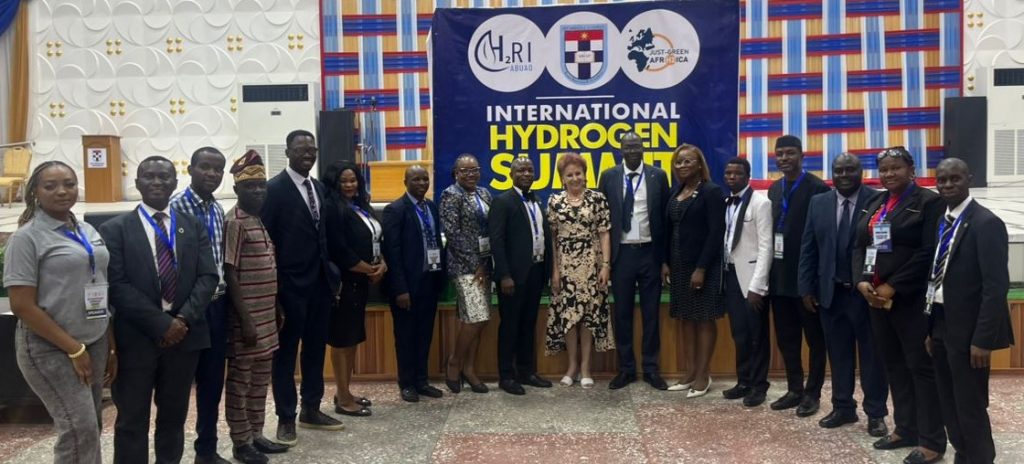
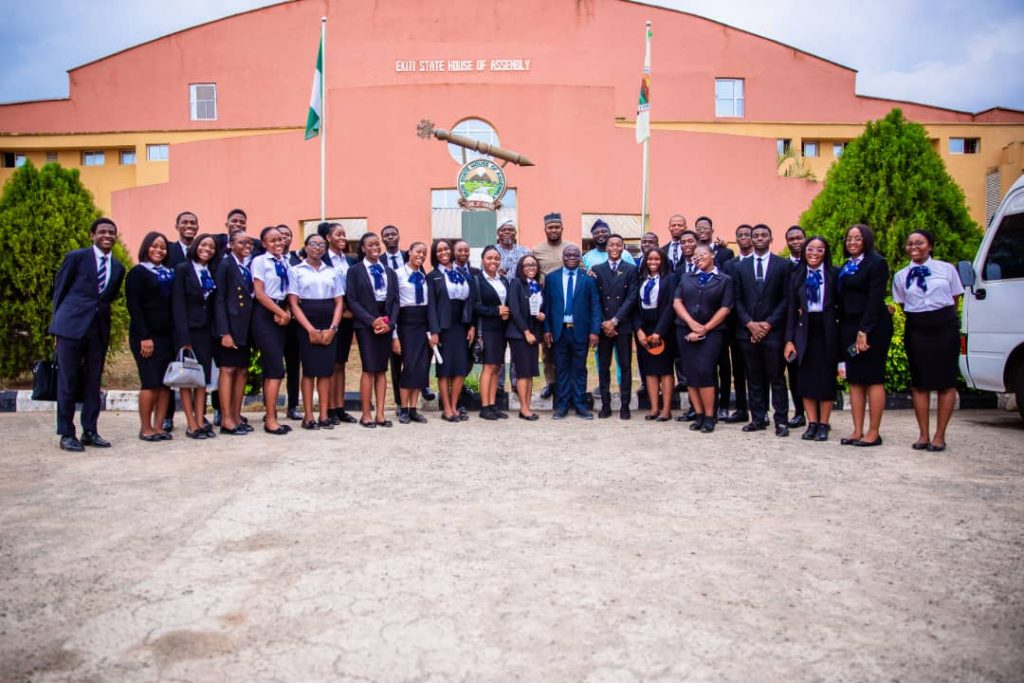
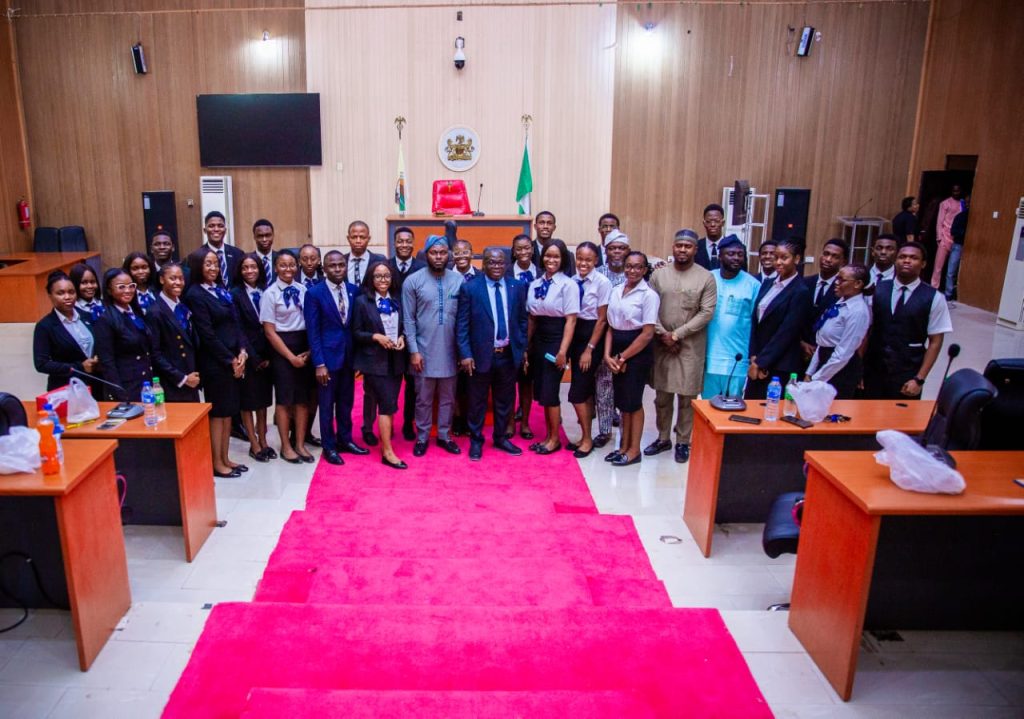
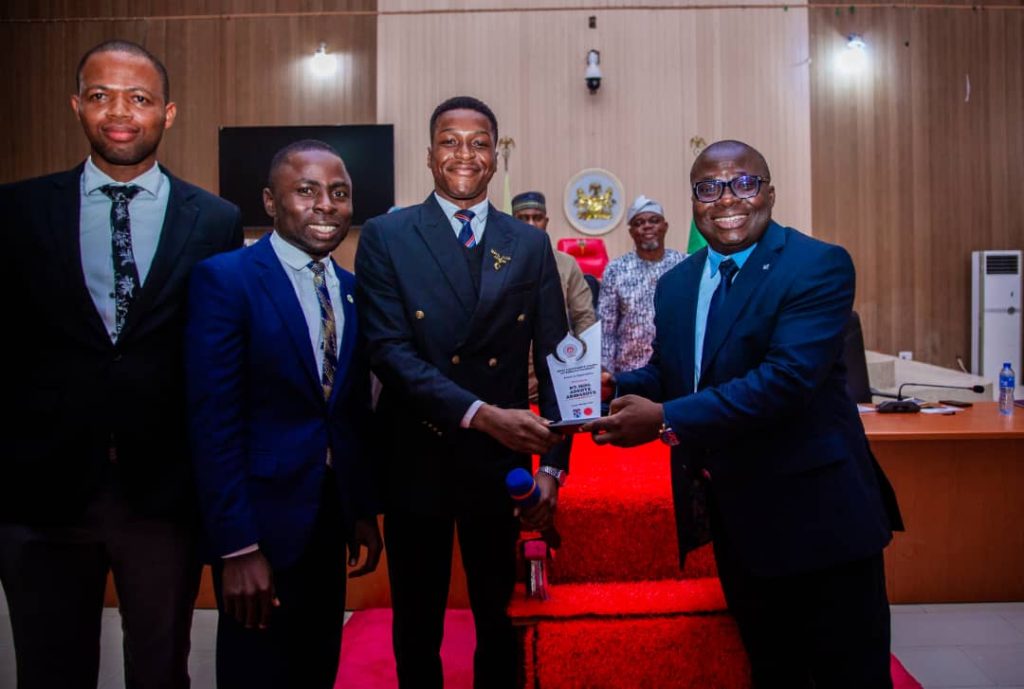
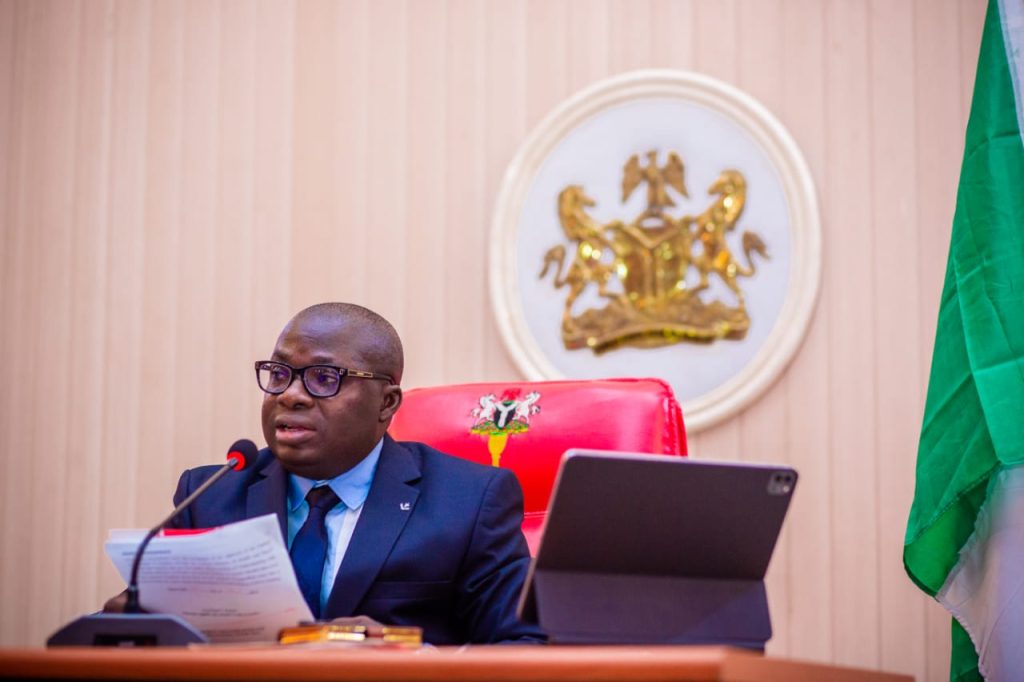
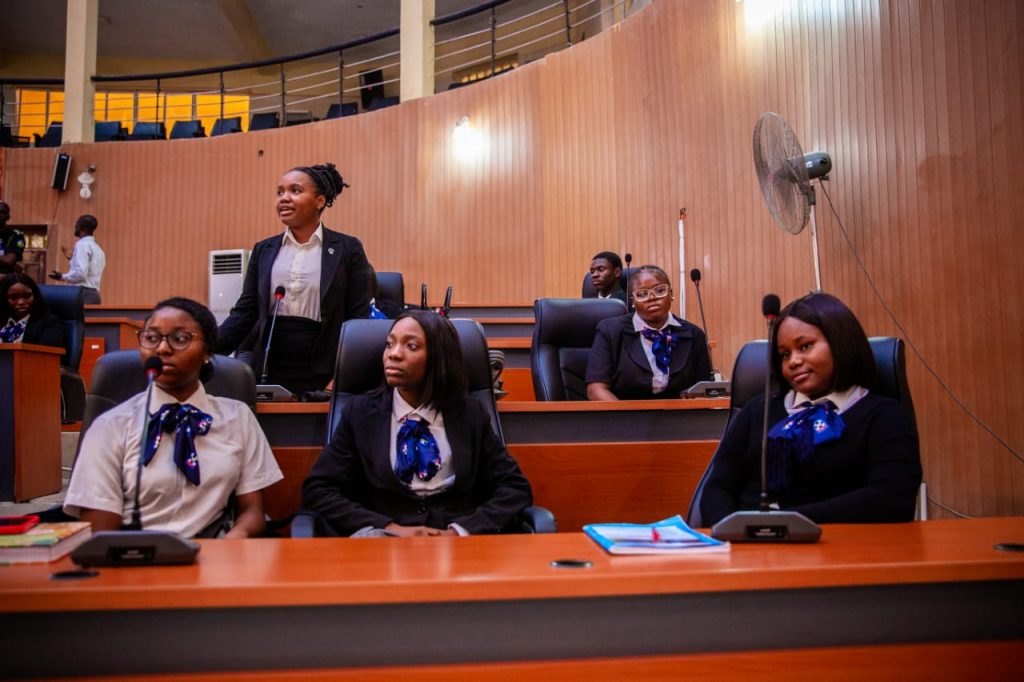



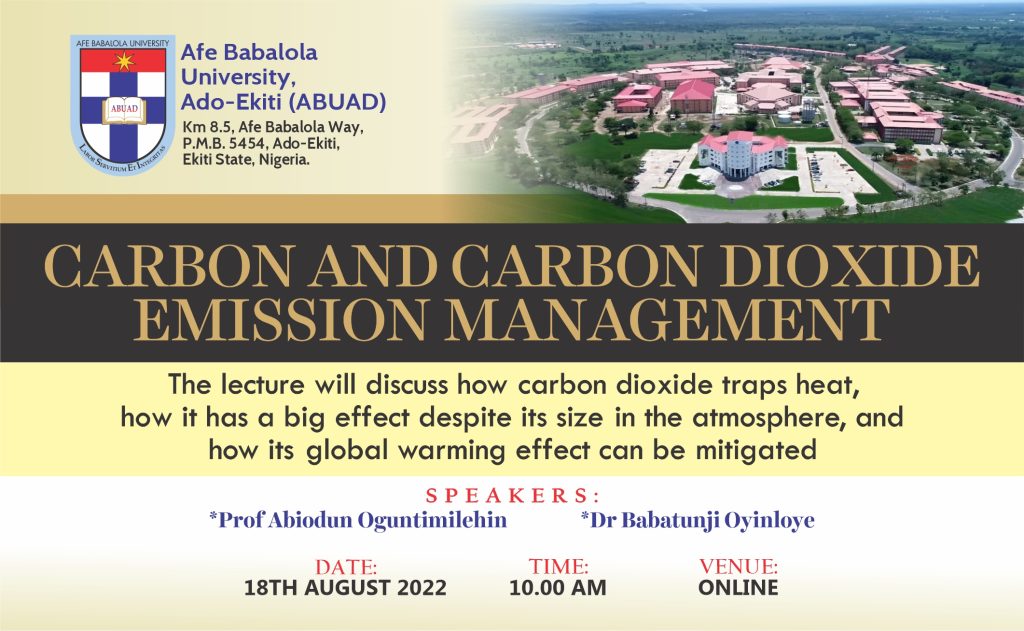
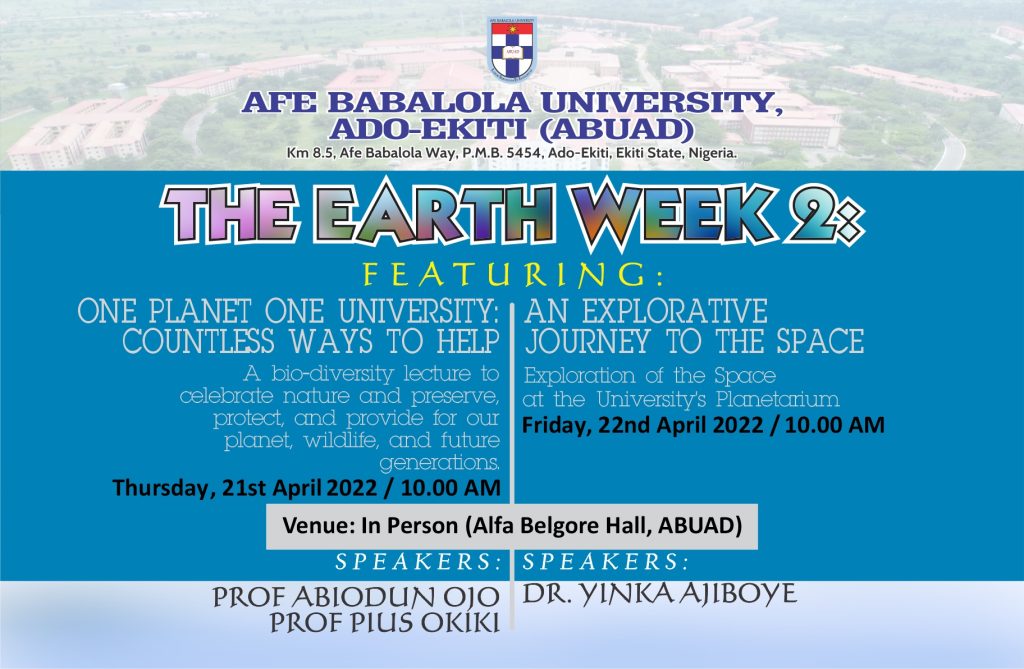
Open and Distant Learning and Part-Time Studies
2. In 2023, the Directorate of Open and Distant Learning and Part-Time Studies offers a comprehensive range of degree programs specifically designed to enhance access to higher education for individuals facing barriers. These programs target prospective students from poor, vulnerable, and non-traditional academic backgrounds, including those who may have previously lacked opportunities to pursue a university education.
The Directorate particularly focuses on supporting groups such as working professionals, including executives, who may find it challenging to commit to traditional full-time studies due to their job responsibilities. Additionally, special emphasis is placed on empowering women and individuals from low-income households, ensuring they have the necessary resources and support to succeed in their academic pursuits. By providing flexible learning options and accessible resources, the Directorate strives to make university education attainable for all deserving candidates, regardless of their circumstances.
2023-FREE-ABUAD-COMMUNITY-SEMINAR-SERIESFREE ABUAD Community Development Seminars 2023
In alignment with its commitment to promote the 17 United Nations Sustainable Development Goals (SDGs), the Research and Innovation Directorate of Afe Babalola University, Ado Ekiti (ABUAD), in 2023, invited individuals and organizations to register for its comprehensive online community development seminars.
These seminars were meticulously crafted to empower local communities by providing them with extensive knowledge and practical skills related to clean energy and its efficient utilization. Participants had the opportunity to engage in collaborative learning experiences that emphasize the significance of energy citizenship—an understanding of the roles and responsibilities individuals have toward sustainable energy practices within their communities.
Throughout the seminars, participants explored various aspects of sustainable business practices, including how to effectively start, operate, and scale their own energy efficiency businesses. The curriculum was designed to address real-world challenges and equipped attendees with innovative tools and strategies that could be applied directly in their community contexts.
By fostering an environment for learning, unlearning, and relearning, these seminars aimed to inspire participants to take action towards building a more sustainable future. Whether they are an entrepreneur, community leader, or an enthusiastic learner, this initiative offered valuable insights and practical knowledge that could help them lead initiatives aimed at promoting energy efficiency and sustainability within their local area.
Click here to see the ABUAD Community Seminars for Year 2021
Free community development seminars are open to anyone who is 15 years or older, and has a love for learning and personal development. These seminar sessions are offered in five sessions in total (two hours a class), over a two-week period, free of charge, and are offered in English. Participants who successfully partake in a minimum of four out of five classes receive a certificate of completion. These seminar courses are not credit-bearing and are ineligible for transfer towards any formal degree or program at ABUAD.
These seminars will also involve a section for advocacy, sensitization and awareness creation for students, staff members, and local communities in the sustainable development goals thematic areas. Since 2016 and continues in 2023, ABUAD has organized an annual Green Pledge Day (GPD), a program that enables students, faculty, and members of the local communities to take a solemn promise and an undertaking towards ensuring 100% renewable energy and its attendants energy efficiency efforts in their respective houses, organisations, and day-to-day operations. Therefore, the 2023 training edition will also impact positively on the staff, students and local communities more by continually promoting public promise towards ensuring one hundred percent (100%) renewable energy that will impact positively on the environment and bring about a better climate change.
With guided presentations and instructions by world-class experts and scholars drawn from across the world, participants will be exposed to latest developments and knowledge in a wide range of sustainable development themes…
2022 ABUAD FREE COMMUNITY SEMINARS SERIES” FLYERS![]()
ABUAD Clean and Green Club Lecture Series and Event 2023
The-ABUAD-Clean-and-Green-Club-Lecture-Series-and-Event-in-Year-20231.0 Workshops and Certifications: ABUAD offers a wide range of free workshops and training programs focused on occupational health and safety. These initiatives aim to help members of the local community maintain an accident-free work environment. Additionally, the programs support participants in transitioning from poverty to prosperity, emphasizing the importance of meeting basic human needs and prioritizing income stability and housing security. Some of the available workshops include:
- Annual Certified Basic Life Support Course
- Injury Prevention Workshop
- Certified Health and Safety Management of Hazardous Materials & Waste Workshop
- Poverty Eradication Workshop and Seminar
- Discussions on Gender-Based Violence in Ekiti State
- Issues Surrounding Sexual Health During World AIDS Day 2023
- Drug-Related Issues
These workshops provide valuable knowledge and skills to help individuals improve their circumstances and contribute to their community.
2.0 Community Health Outreach and Vaccination campaigns: The ABUAD College of Health and Medical Sciences, in collaboration with the ABUAD Multisystem Hospital, is dedicated to enhancing community health through a series of free outreach programs and vaccination campaigns. These initiatives are designed to address various health concerns and raise awareness among community members. The key programs offered include:
Annual HIV/AIDS Awareness Campaign: This campaign aims to educate the public about the prevention, transmission, and treatment of HIV/AIDS, while reducing stigma and promoting testing and support services.
Annual Seasonal Flu Vaccination Campaign: To combat seasonal influenza, this campaign provides free flu vaccinations to help protect individuals and communities, particularly vulnerable populations such as the elderly and those with underlying health conditions.
Annual Blood Donation Campaign: This initiative encourages community members to donate blood, emphasizing the importance of blood donation in saving lives and meeting the needs of healthcare facilities.
Breast Cancer Awareness Campaign: Aimed at educating women about breast cancer prevention, early detection, and treatment options, this campaign promotes regular screenings and self-examinations.
Diabetes Prevention Campaign: This program focuses on educating the community about the risk factors and symptoms of diabetes, promoting a healthy lifestyle, and encouraging regular health check-ups to prevent the disease.
Vitamin D Screening Campaign: This initiative offers free vitamin D screenings to raise awareness about the importance of vitamin D for overall health, particularly for bone health and immune function.
Organ Donation Awareness Campaign: This campaign seeks to inform the public about the significance of organ donation, encouraging people to consider becoming donors and discussing their wishes with family members.
Sexual Health Awareness Campaign: Focused on promoting safe practices and understanding sexual health, this program provides resources and education around sexually transmitted infections (STIs) and reproductive health.
Mental Health Awareness Campaign: This initiative aims to destigmatize mental health issues, promote understanding and support, and provide resources for those in need of mental health services.
Annual “Help Babies Breathe” Awareness Campaign: This vital program equips caregivers with essential skills for neonatal resuscitation, focusing on the importance of immediate care for infants who need help at birth.
Cervical Cancer Awareness Campaign: This campaign aims to educate the public about cervical cancer, its risk factors, and the importance of regular screenings and vaccinations. It focuses on raising awareness about early detection and prevention strategies to help reduce incidence rates and improve women’s health outcomes.
Prostate Cancer Awareness Campaign: This initiative focuses on increasing awareness of prostate cancer among men, highlighting risk factors such as age and family history. The campaign aims to inform the public about the importance of regular check-ups and prostate-specific antigen (PSA) testing for early detection and better treatment options.
Hepatitis Awareness Campaign: This campaign seeks to raise awareness about hepatitis, a potentially serious liver infection, and its various types (A, B, C, etc.). It emphasizes the significance of vaccination, safe practices to prevent transmission, and the importance of early diagnosis and treatment options to manage the disease effectively.
These comprehensive community health programs are designed to empower individuals with knowledge, facilitate access to essential healthcare services, and ultimately improve the overall health and well-being of the community.
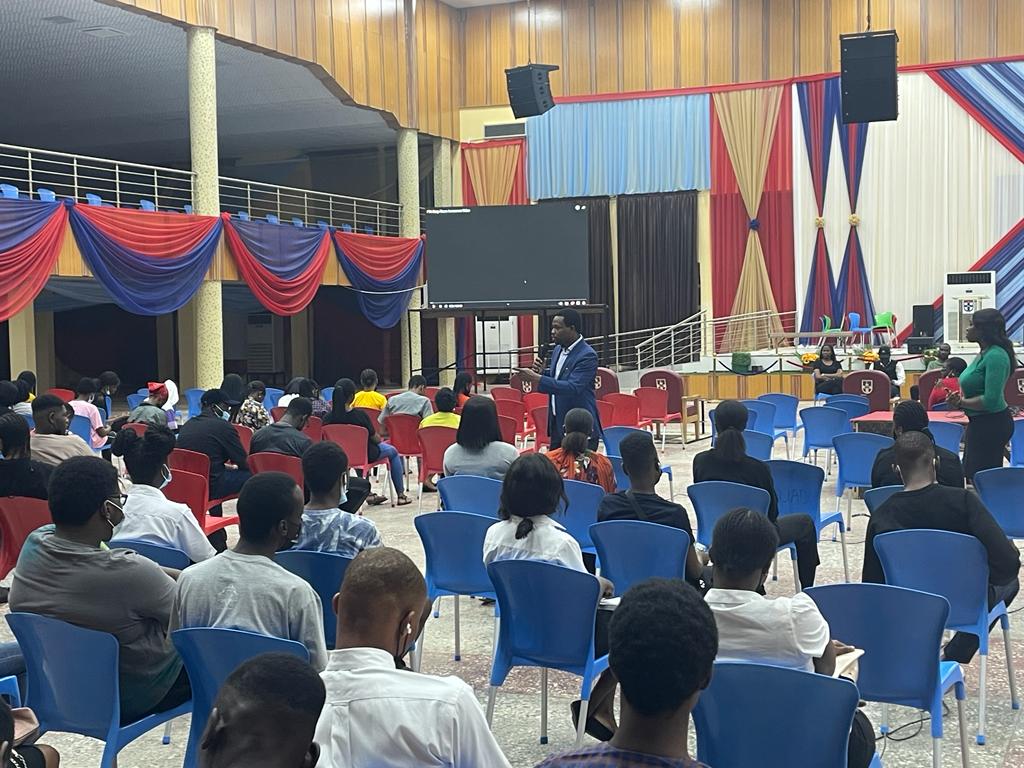
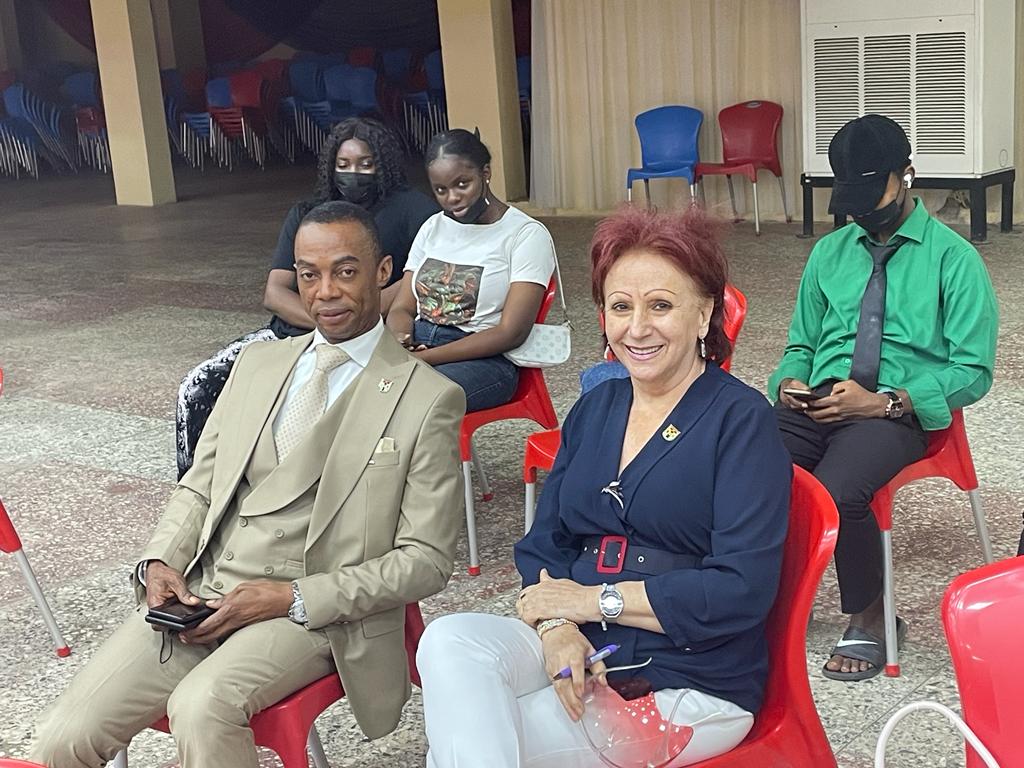
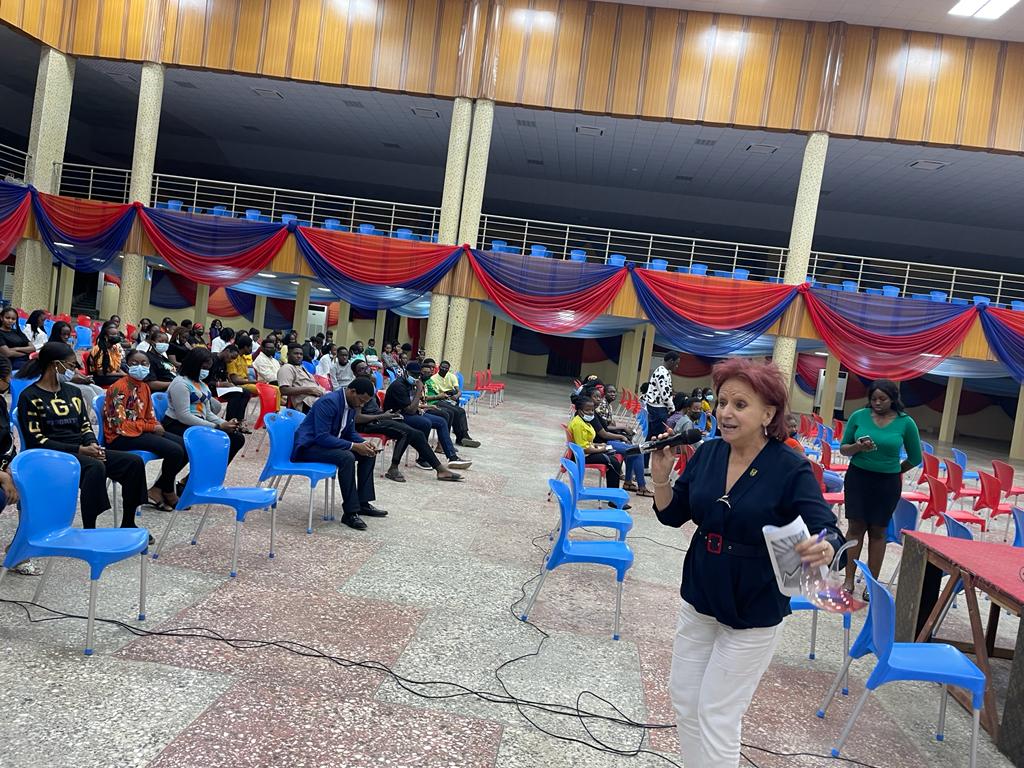
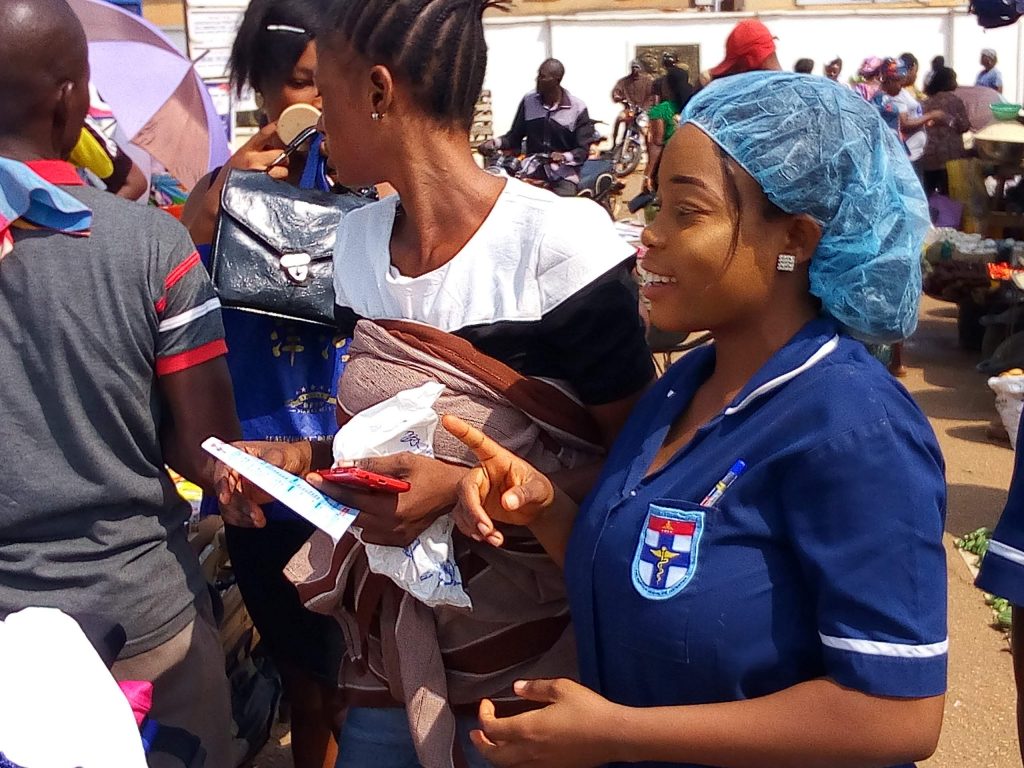
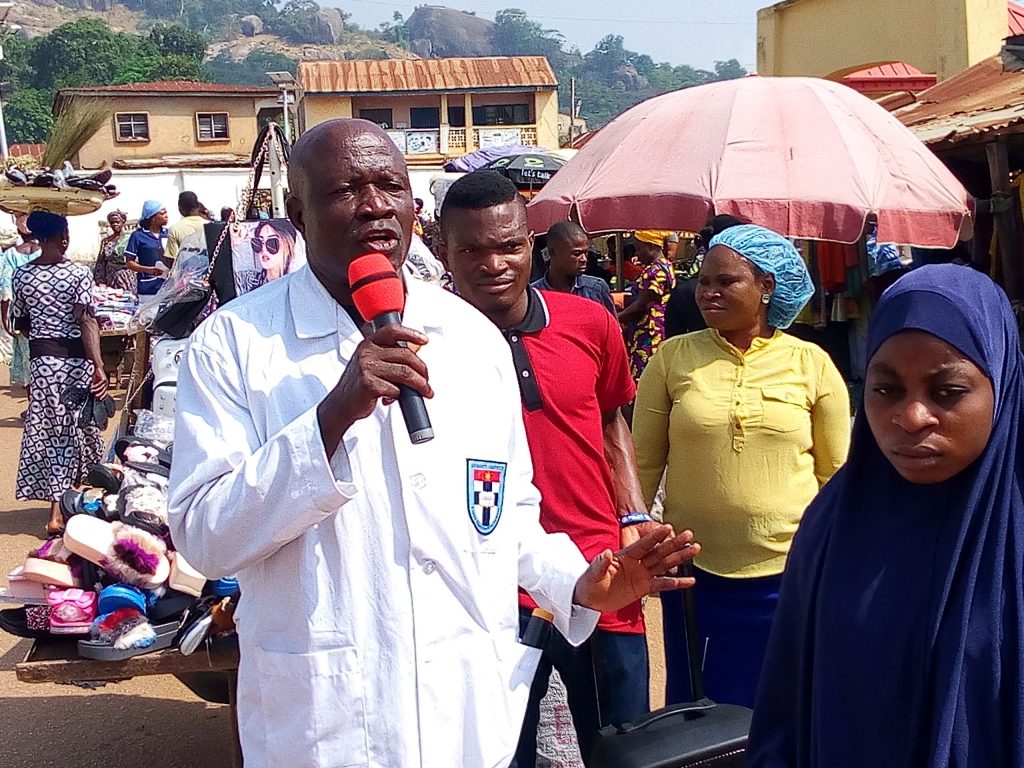
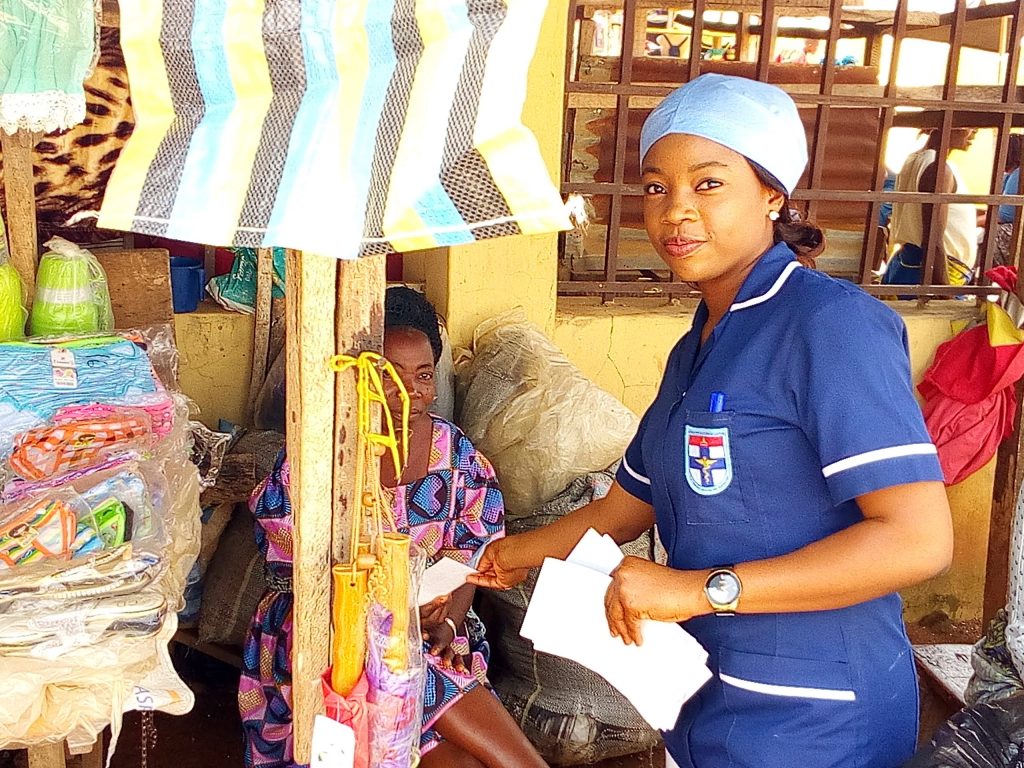
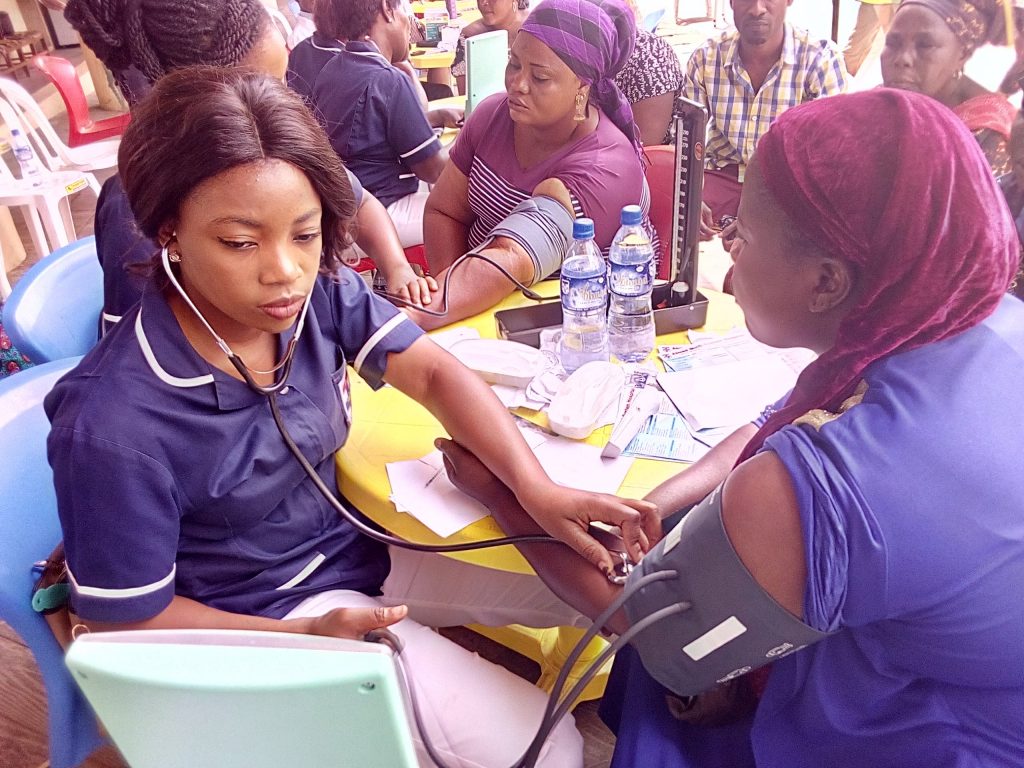
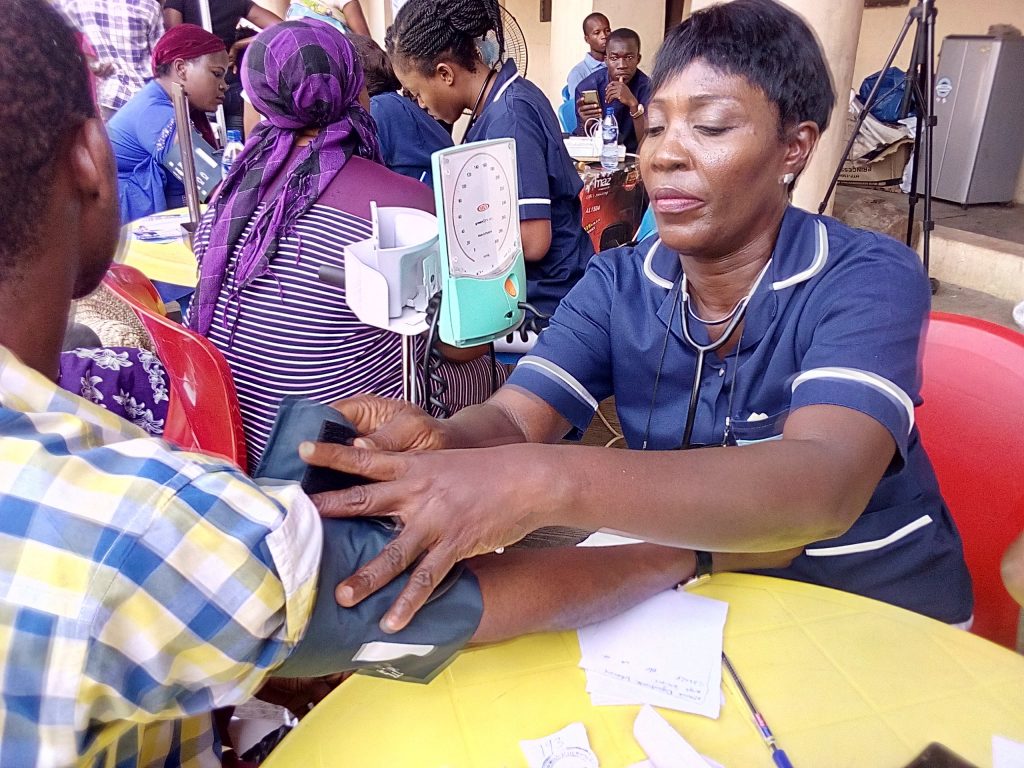
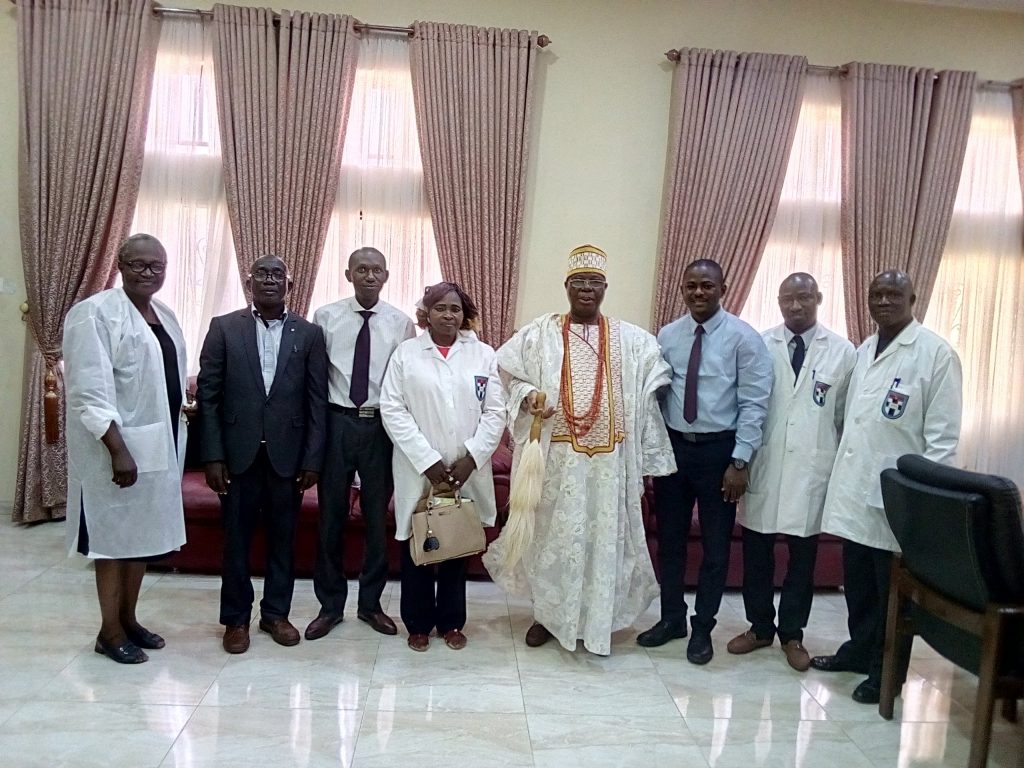
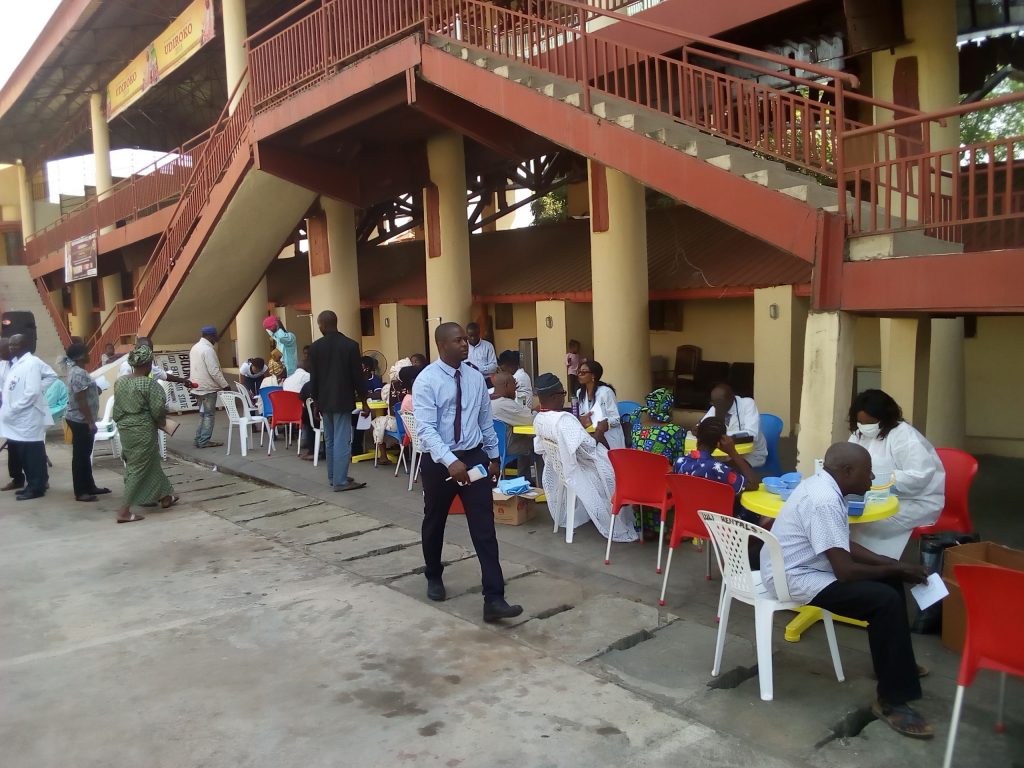
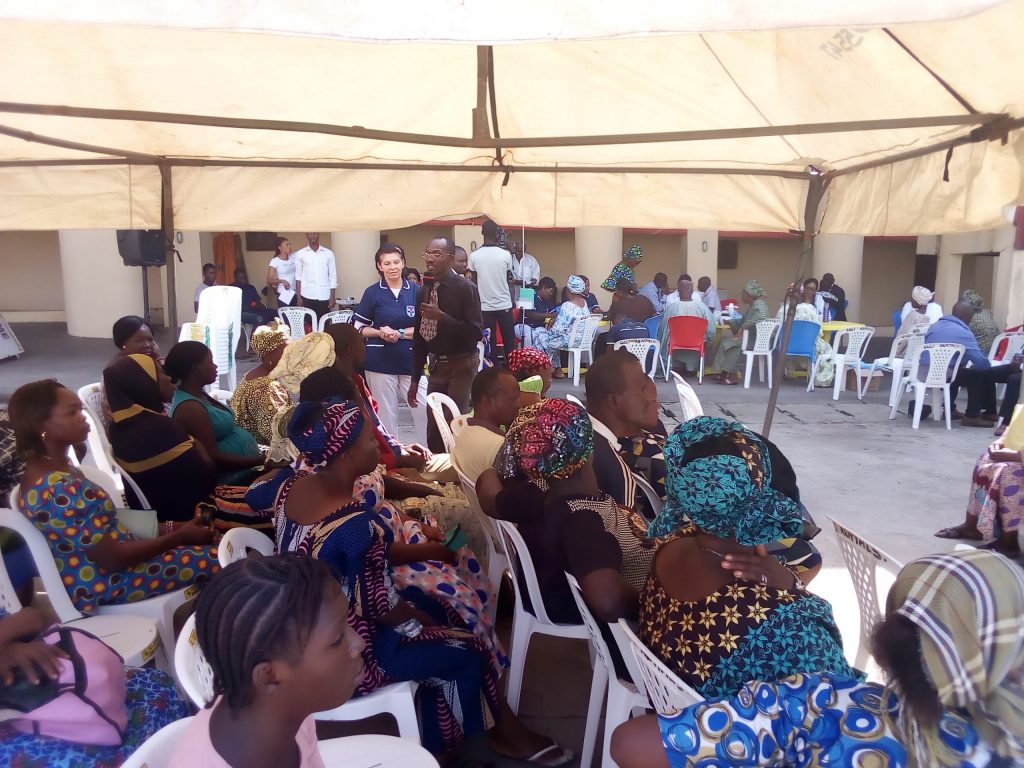
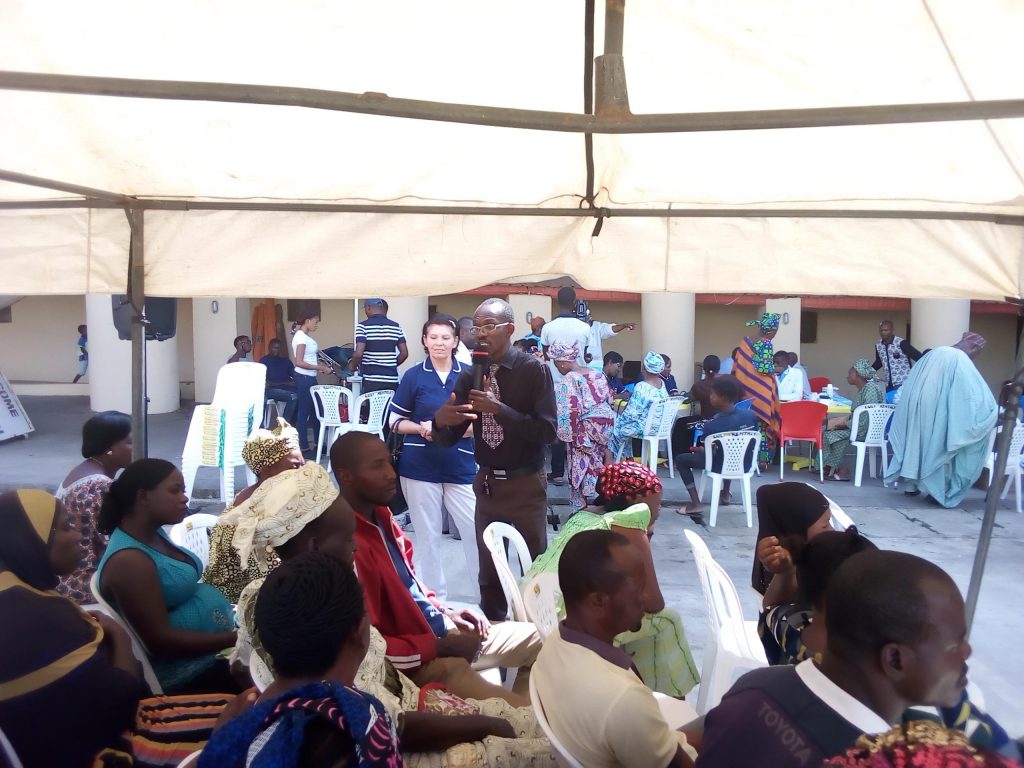
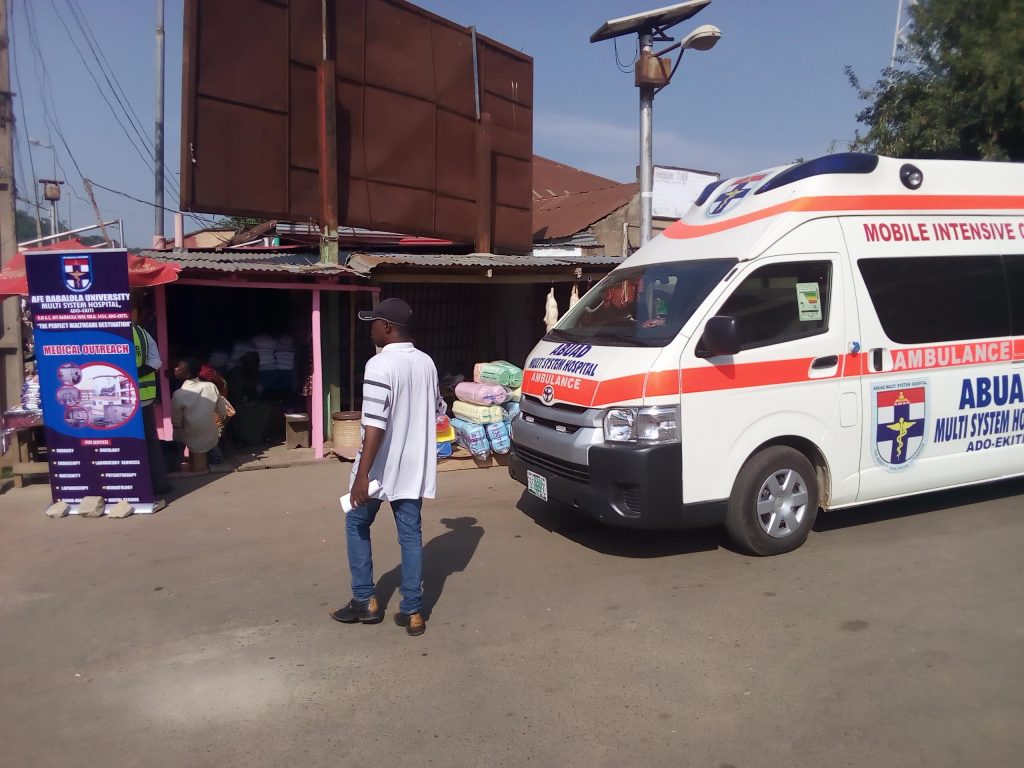
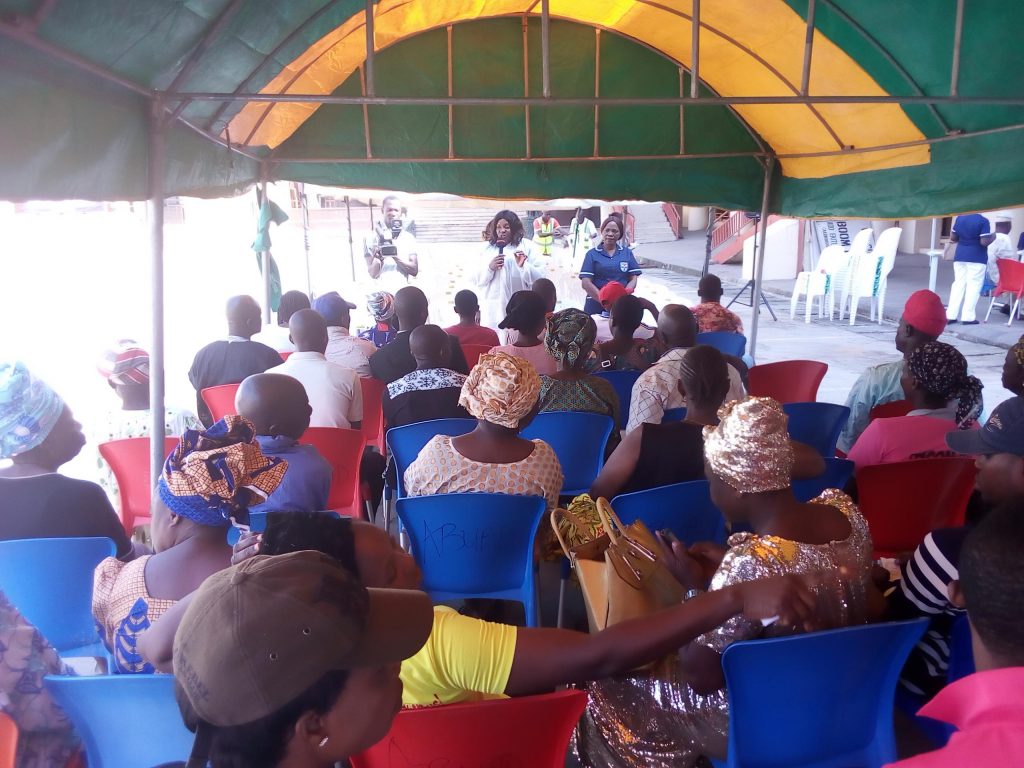
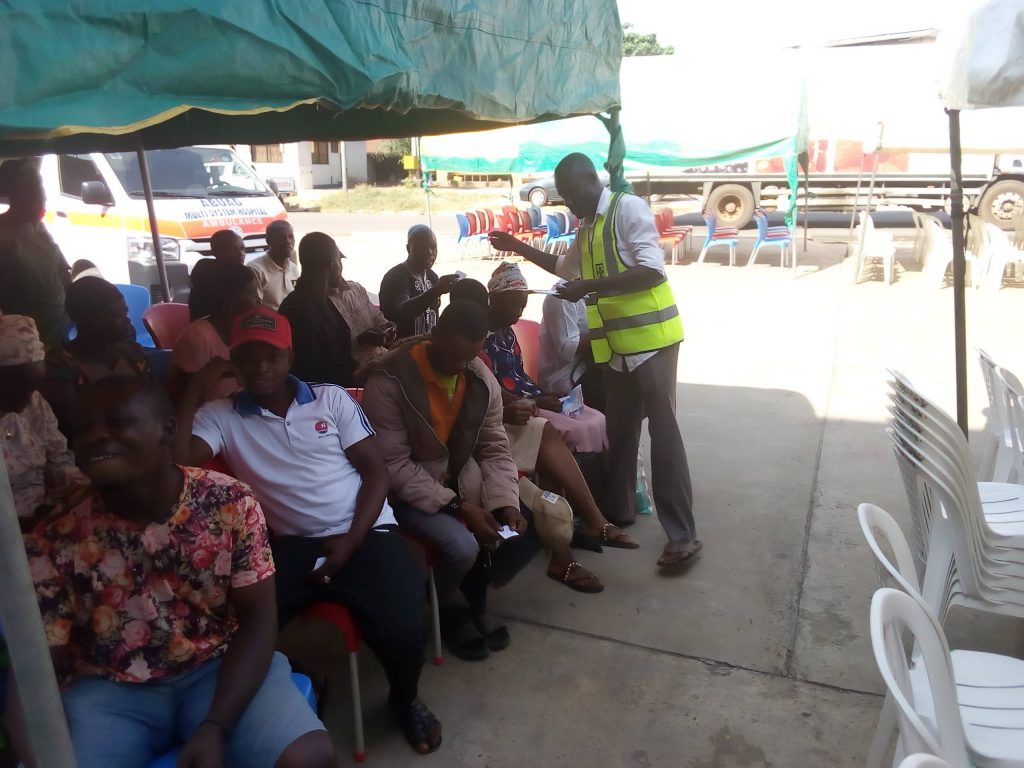
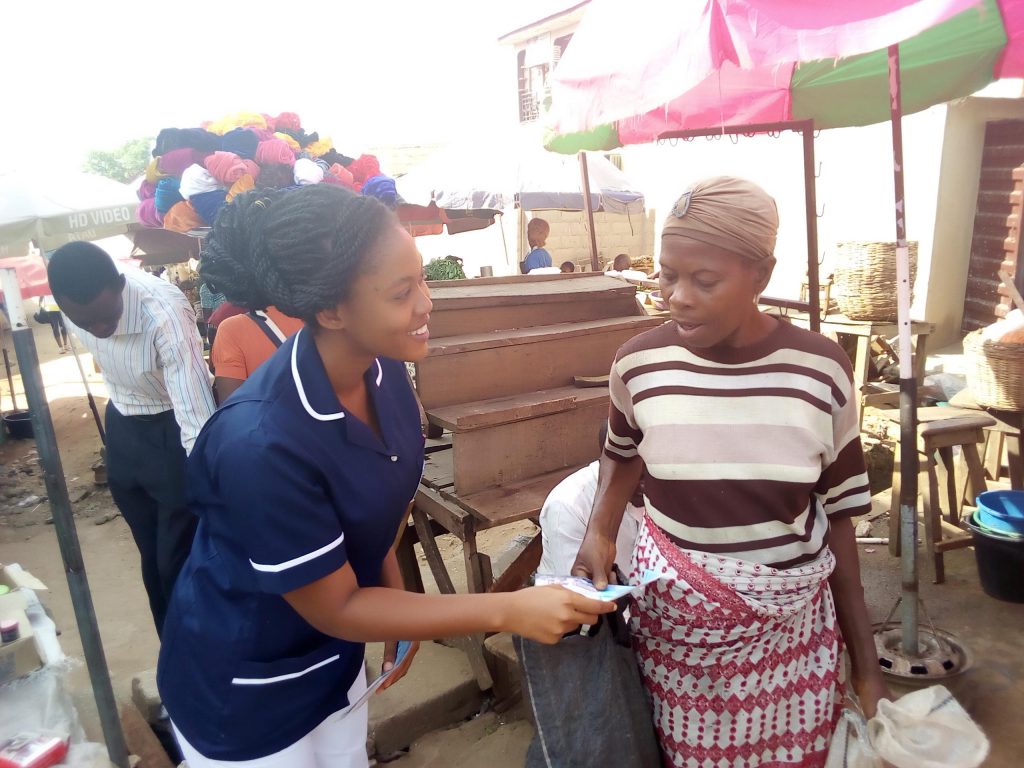
Related Posts:
ABUAD Law Clinic http://www.abuad.edu.ng/wp-content/uploads/2017/04/Law-Clinic-1.pdf
ABUAD begins discounted part-time studies for youths https://punchng.com/abuad-begins-discounted-part-time-studies-for-youths/
Afe Babalola University Takes A Green Leap
https://greeninstitute.ng/blog1/2016/3/2/afe-babalola-university-takes-a-green-leap

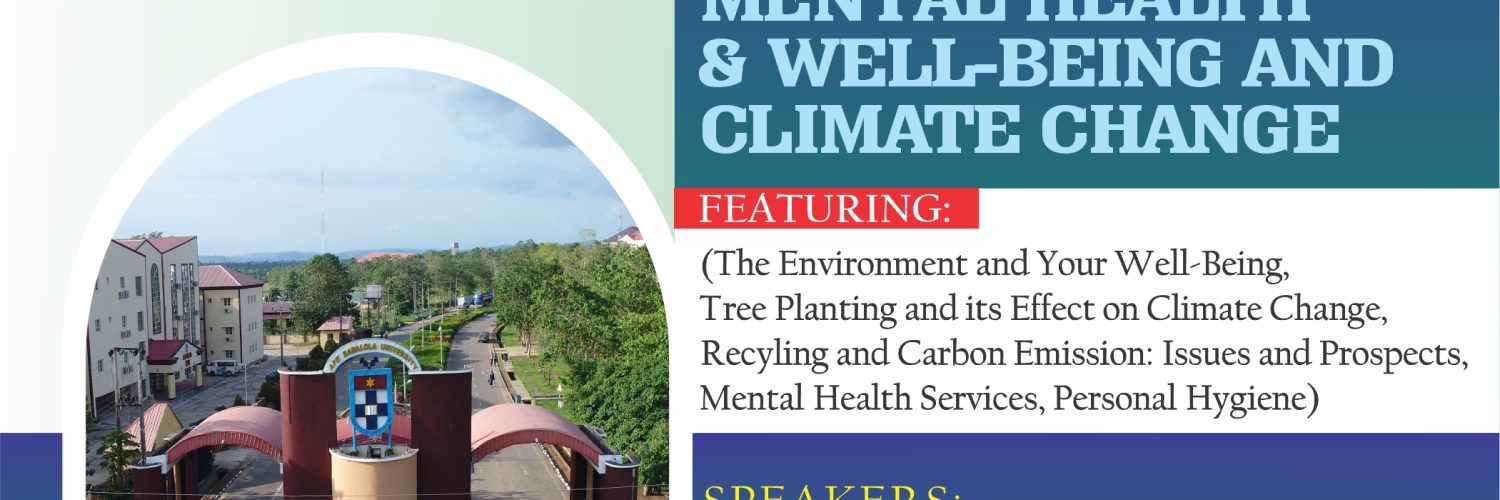
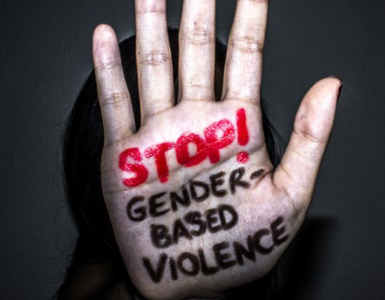
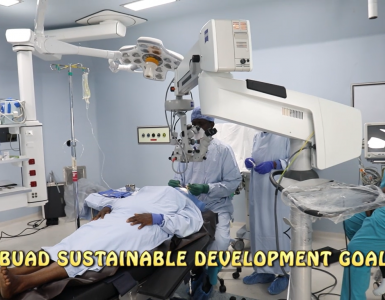
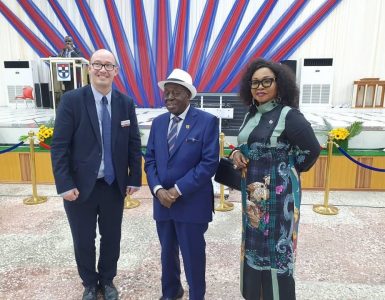
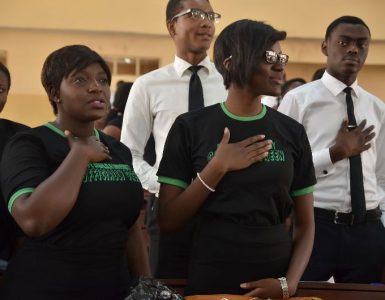










Add comment